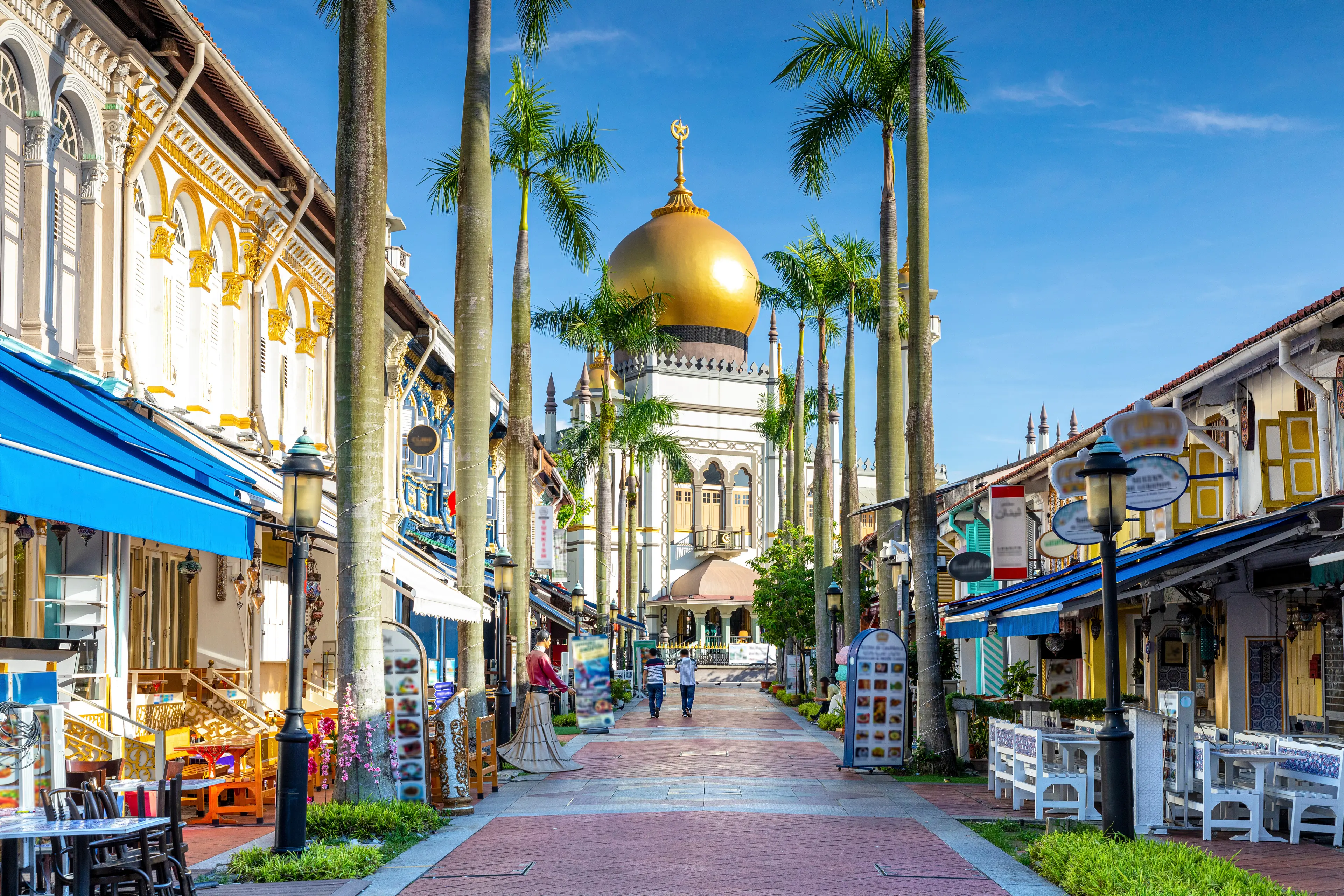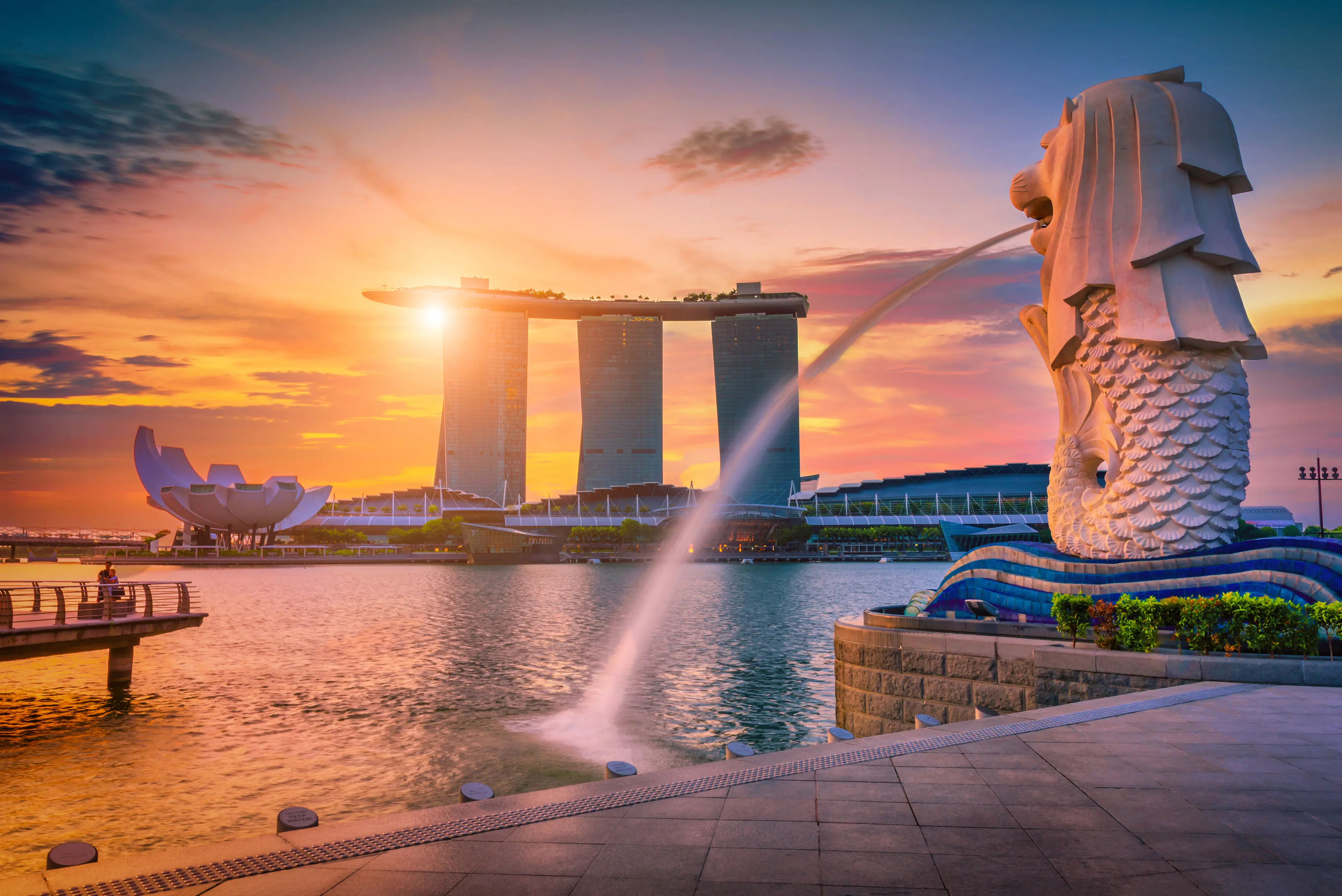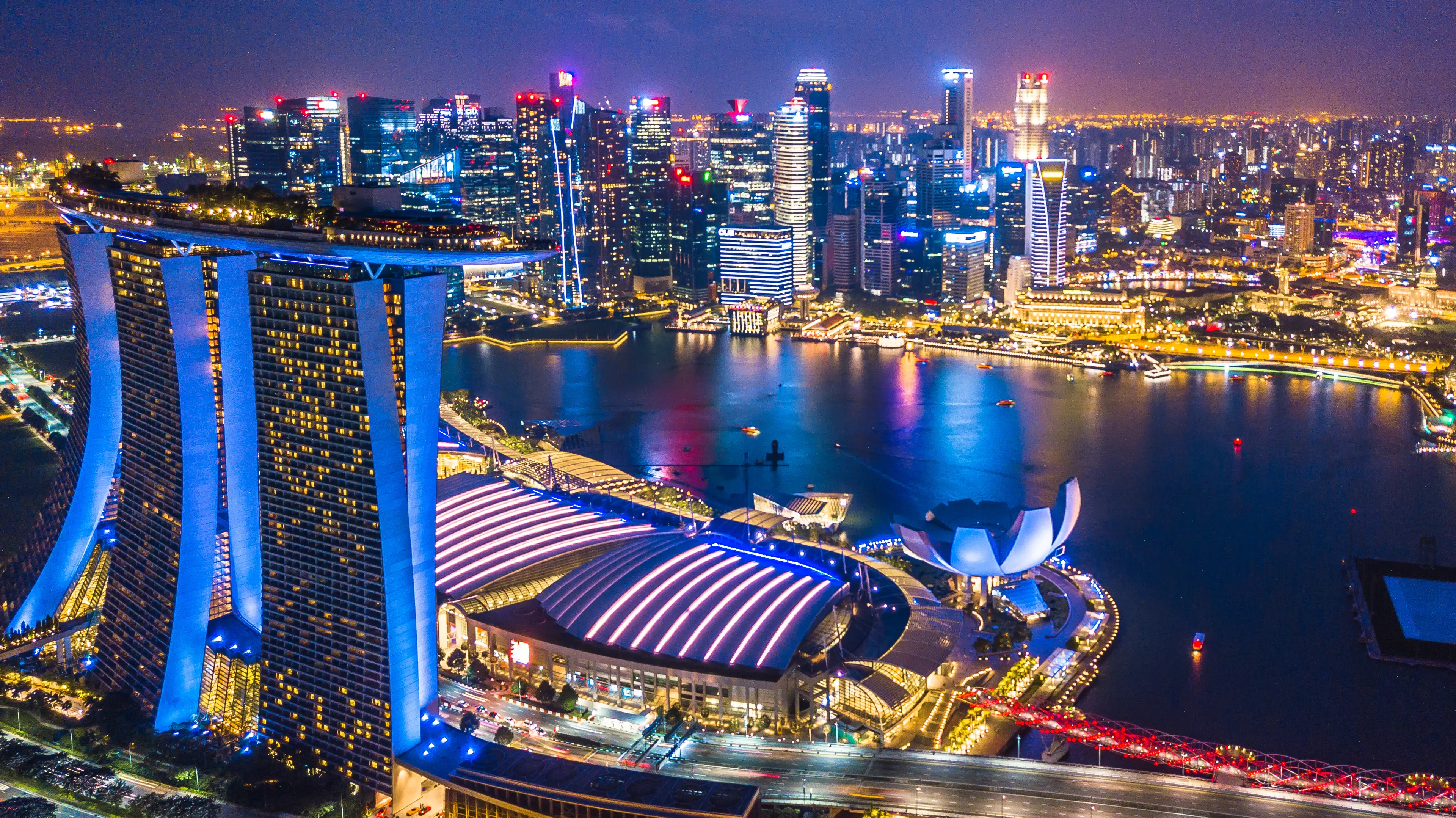Explore Singapore: A 2-Day Itinerary Highlights
Singapore
2 days
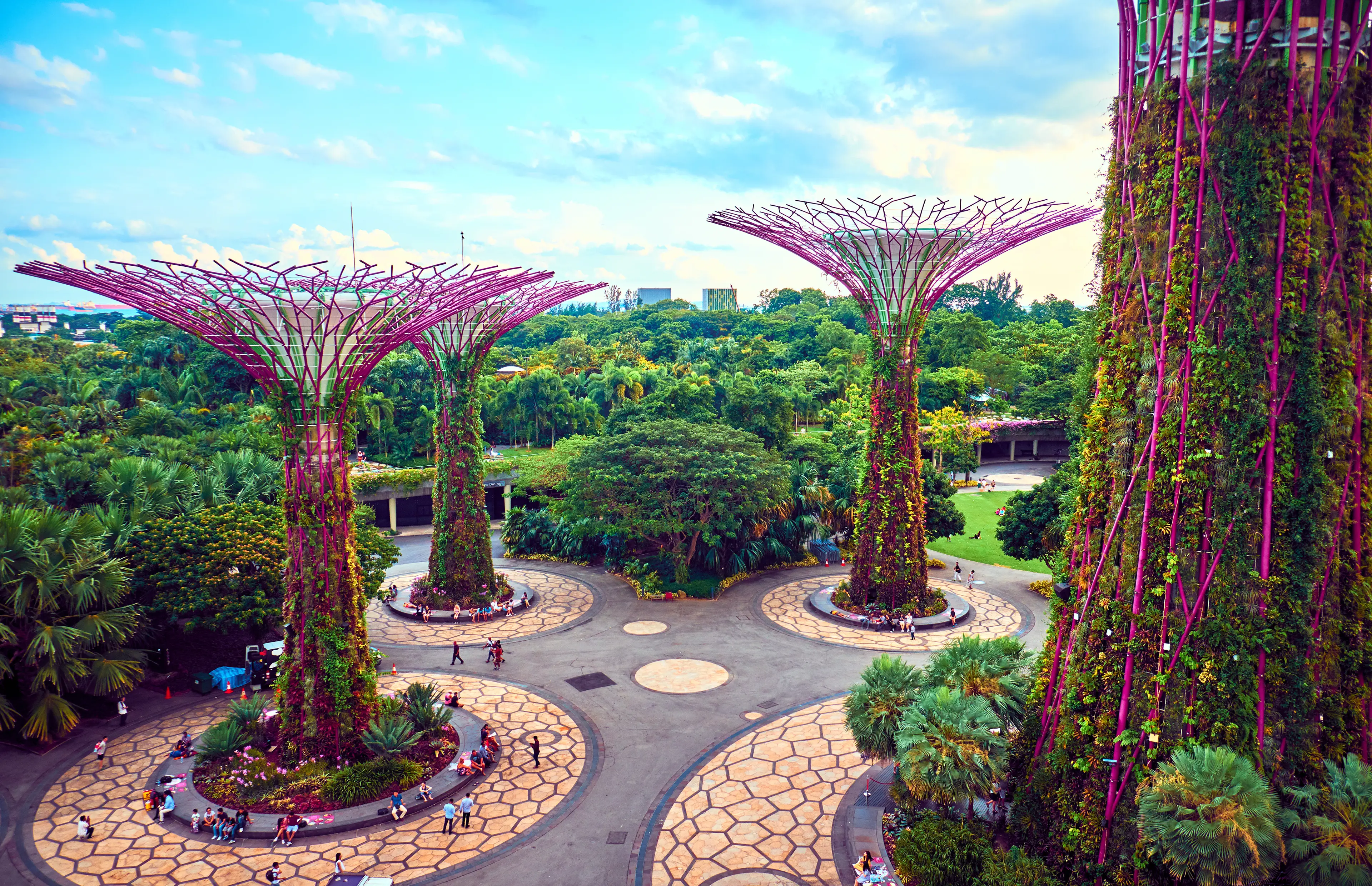
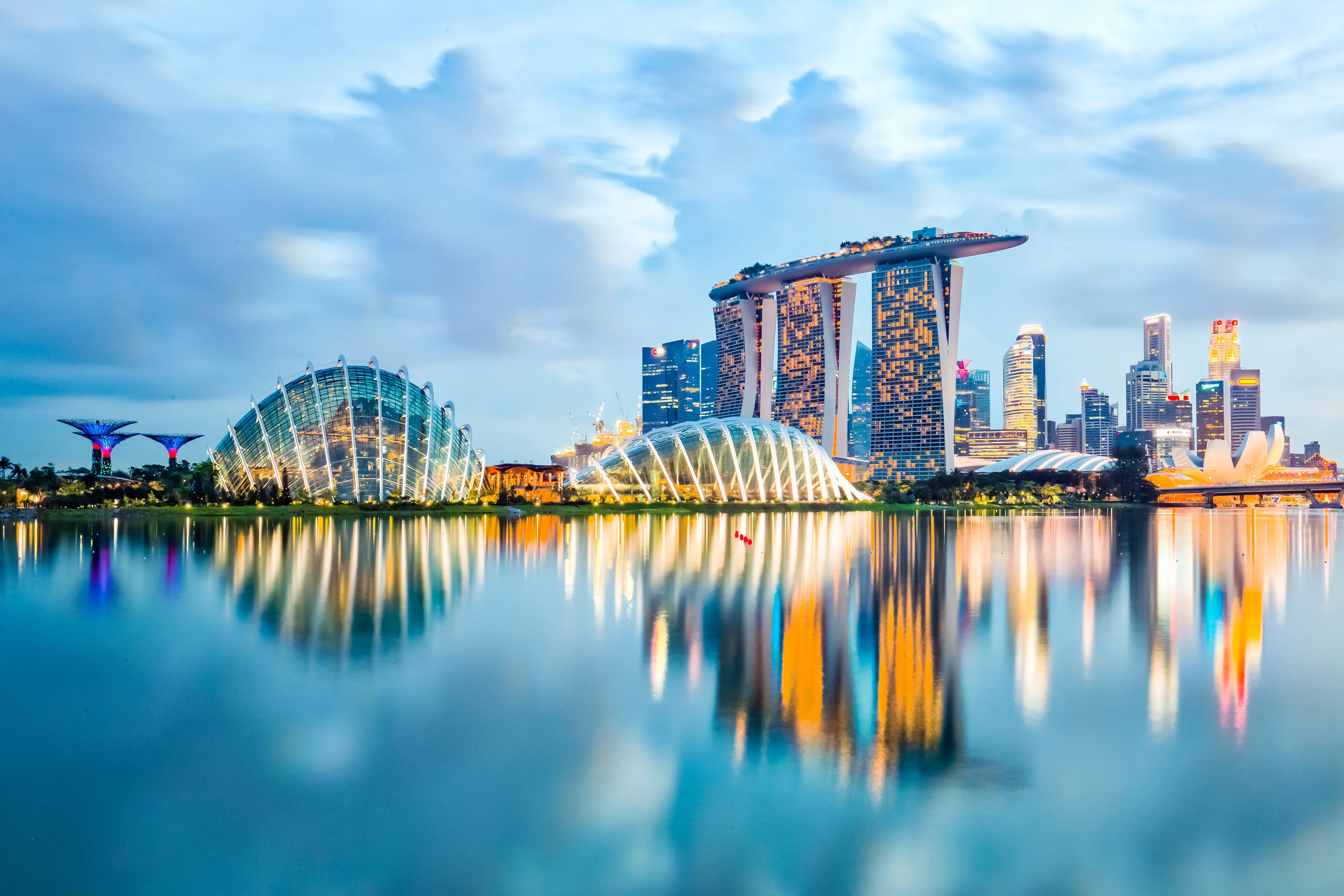
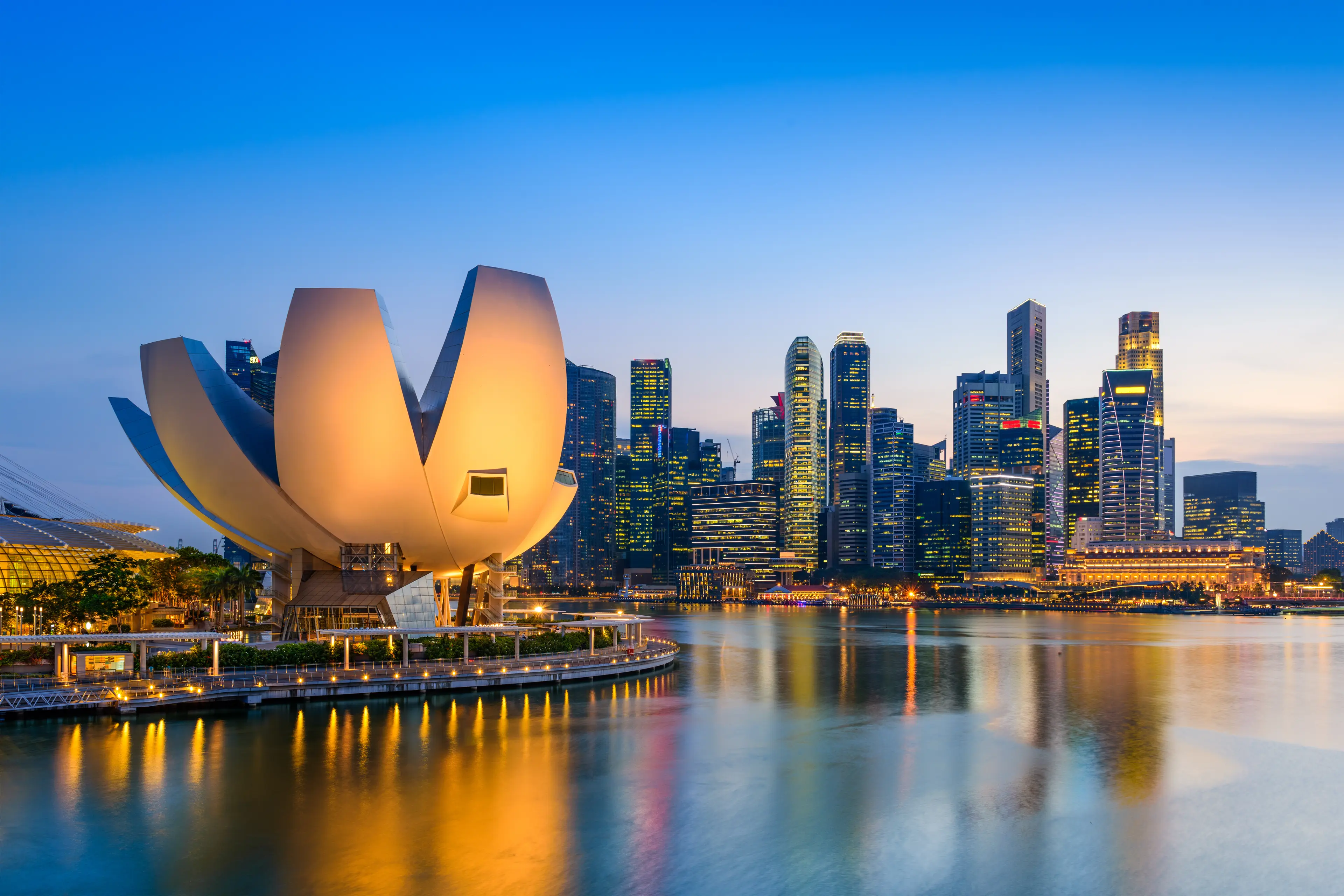
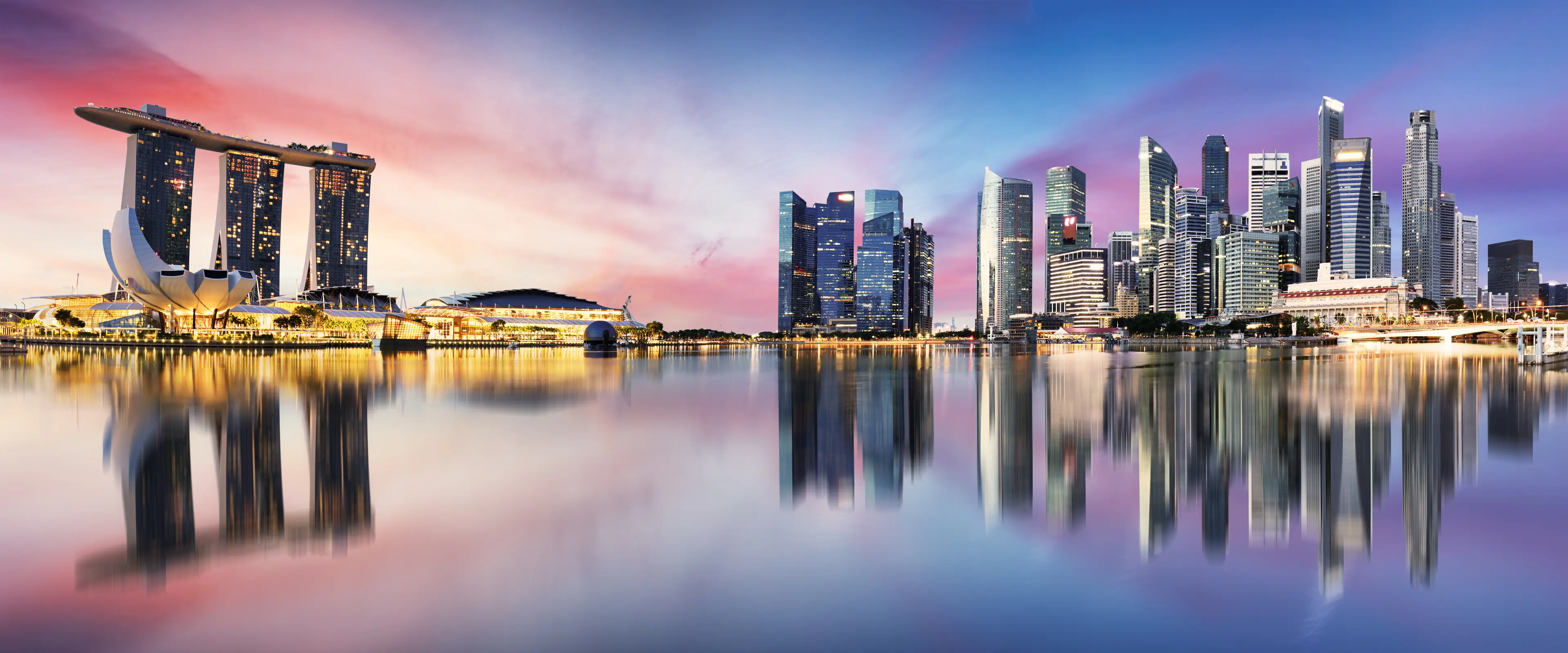
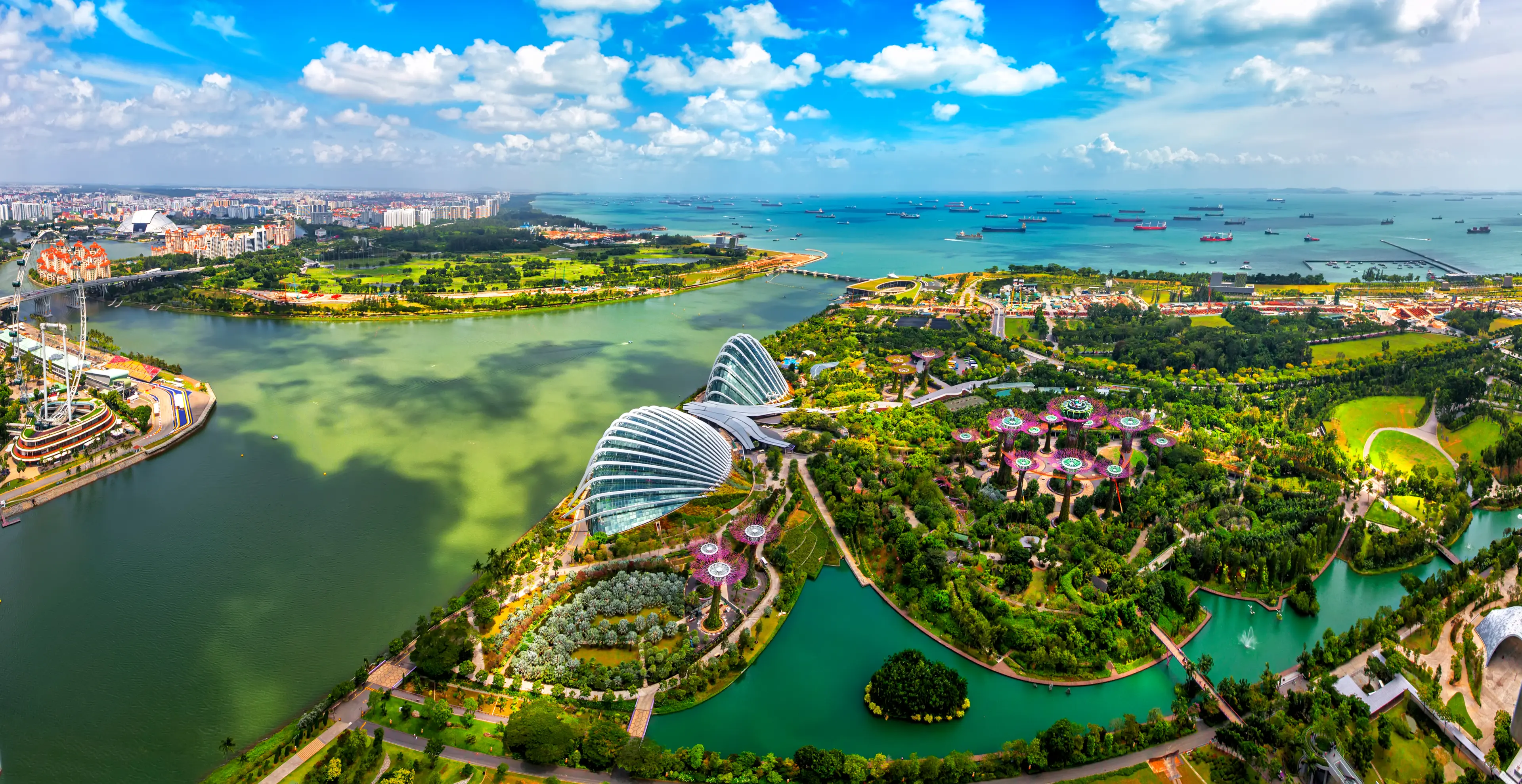
About Singapore
Experience the vibrant fusion of tradition and modernity in Singapore, a dynamic city-state at the heart of Southeast Asia. Marvel at the iconic skyline dominated by futuristic architecture, explore the lush Gardens by the Bay, and immerse yourself in the rich cultural tapestry of Chinatown, Little India, and Kampong Glam. Indulge in a gastronomic adventure at the famed hawker centers, offering a diverse array of local and international cuisines. Visit Sentosa Island for thrilling attractions and sandy beaches, or take a leisurely stroll along the Marina Bay Sands promenade. With its efficient public transportation, safe streets, and English-speaking locals, Singapore offers a seamless and enriching travel experience. Whether you're a history buff, a foodie, or an adventure-seeker, Singapore has something for everyone.
2-Day Itinerary
Day 2
A Day at the Singapore Zoo and National Museum
Morning
Start your day with a visit to the Singapore Zoo. Enjoy the interactive exhibits and see a variety of animals in their natural habitats.
Lunch
Enjoy a lunch at a local restaurant serving traditional Singaporean cuisine.
Afternoon
After lunch, head to the National Museum of Singapore. Learn about the city's history and culture through its interactive exhibits.
Dinner
For dinner, head to a popular food court and indulge in a variety of local and international cuisines.
Evening
End your day with a visit to the iconic Merlion Park. Enjoy the stunning night views of the city skyline.
Attractions in Itinerary (6)
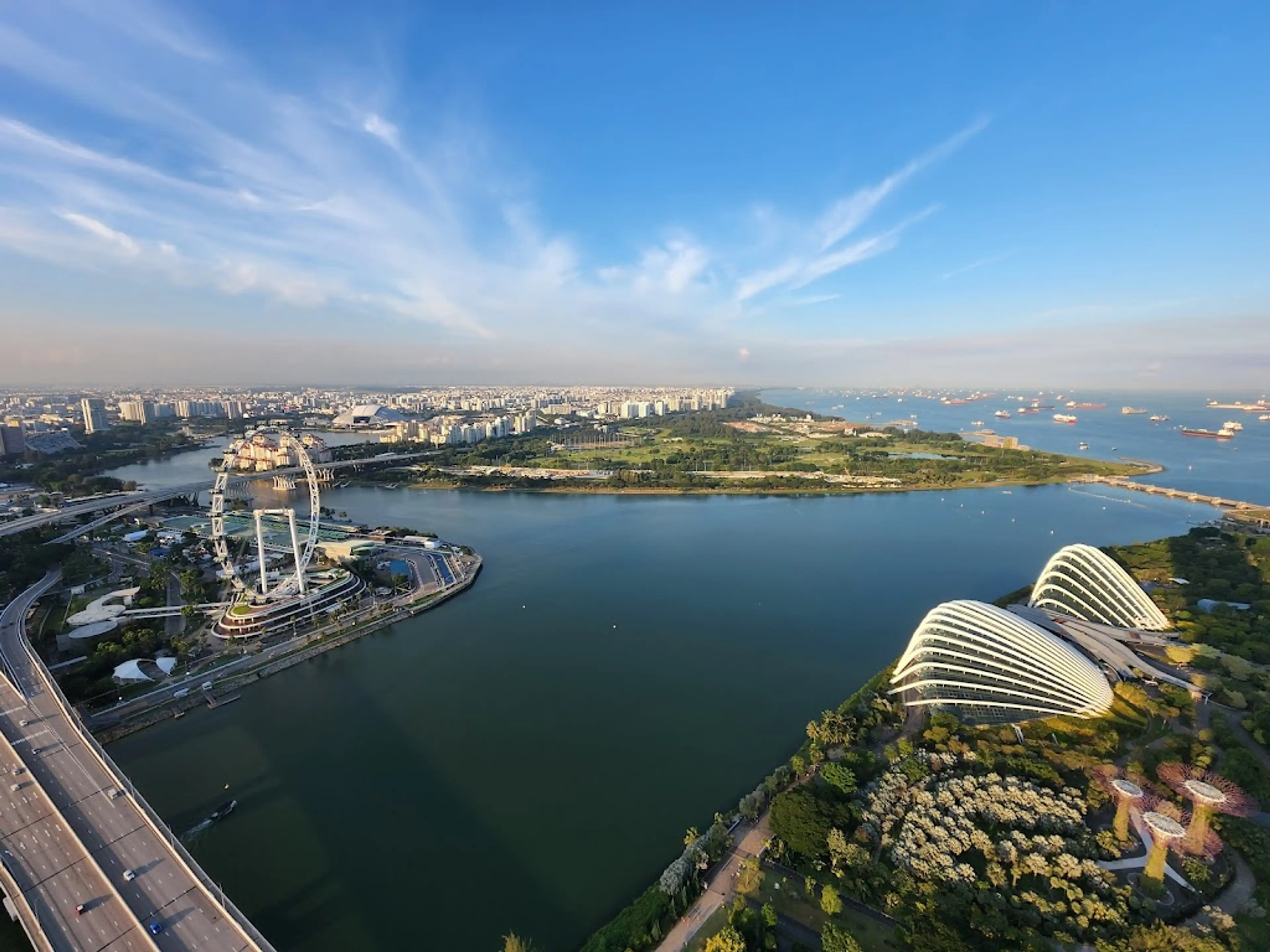
1Marina Bay Sands
Marina Bay Sands is an integrated resort fronting Marina Bay in Singapore. At its opening in 2010, it was billed as the world's most expensive standalone casino property. The resort includes a 2,561-room hotel, a 120,000-square-metre convention-exhibition centre, the 74,000-square-metre The Shoppes at Marina Bay Sands mall, a museum, two large theatres, celebrity chef restaurants, two floating Crystal Pavilions, art-science exhibits, and the world's largest atrium casino with 500 tables and 1,600 slot machines.
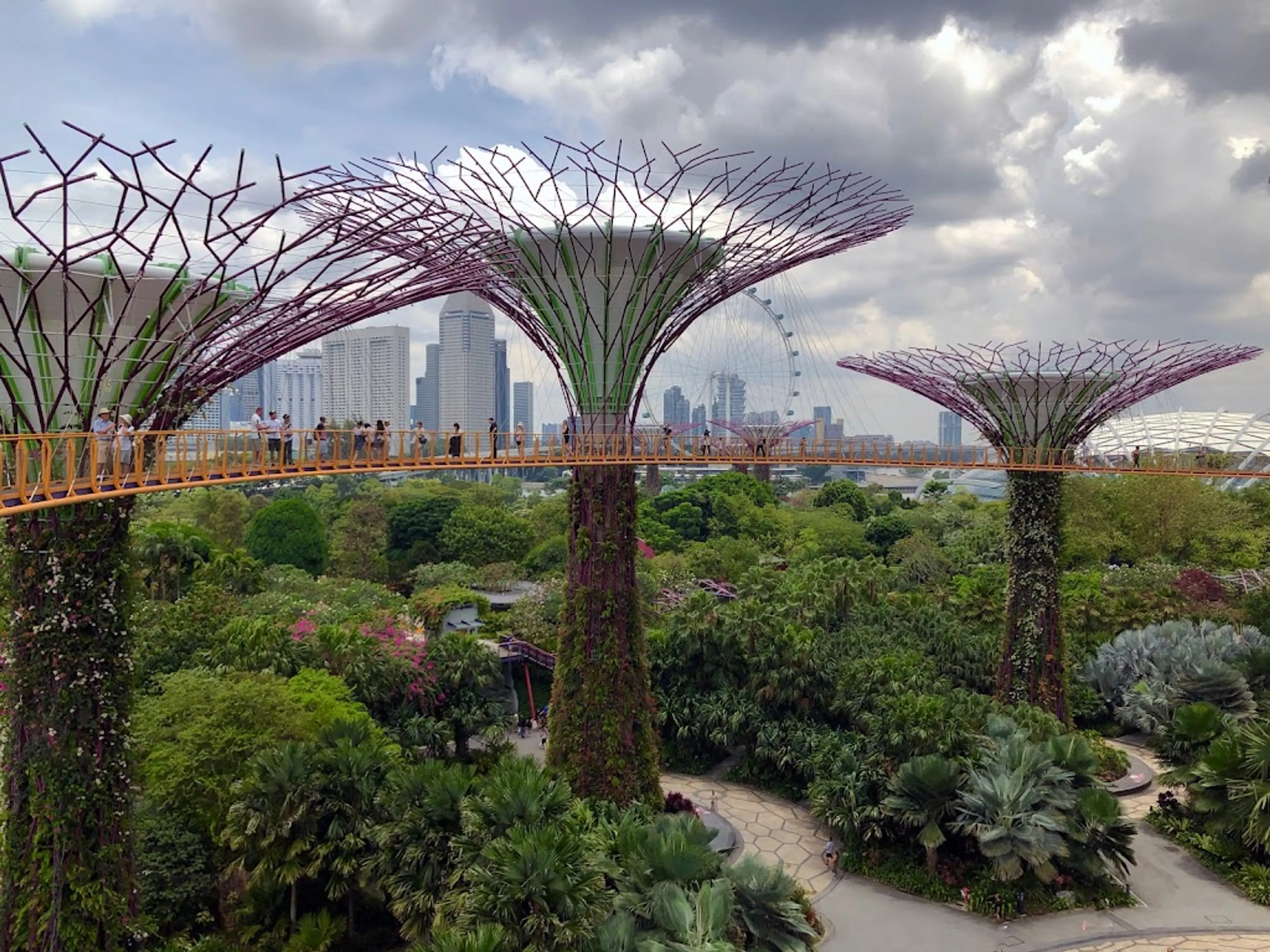
2Gardens by the Bay
A nature park spanning 101 hectares of reclaimed land in central Singapore, adjacent to the Marina Reservoir. The park consists of three waterfront gardens: Bay South Garden, Bay East Garden and Bay Central Garden.
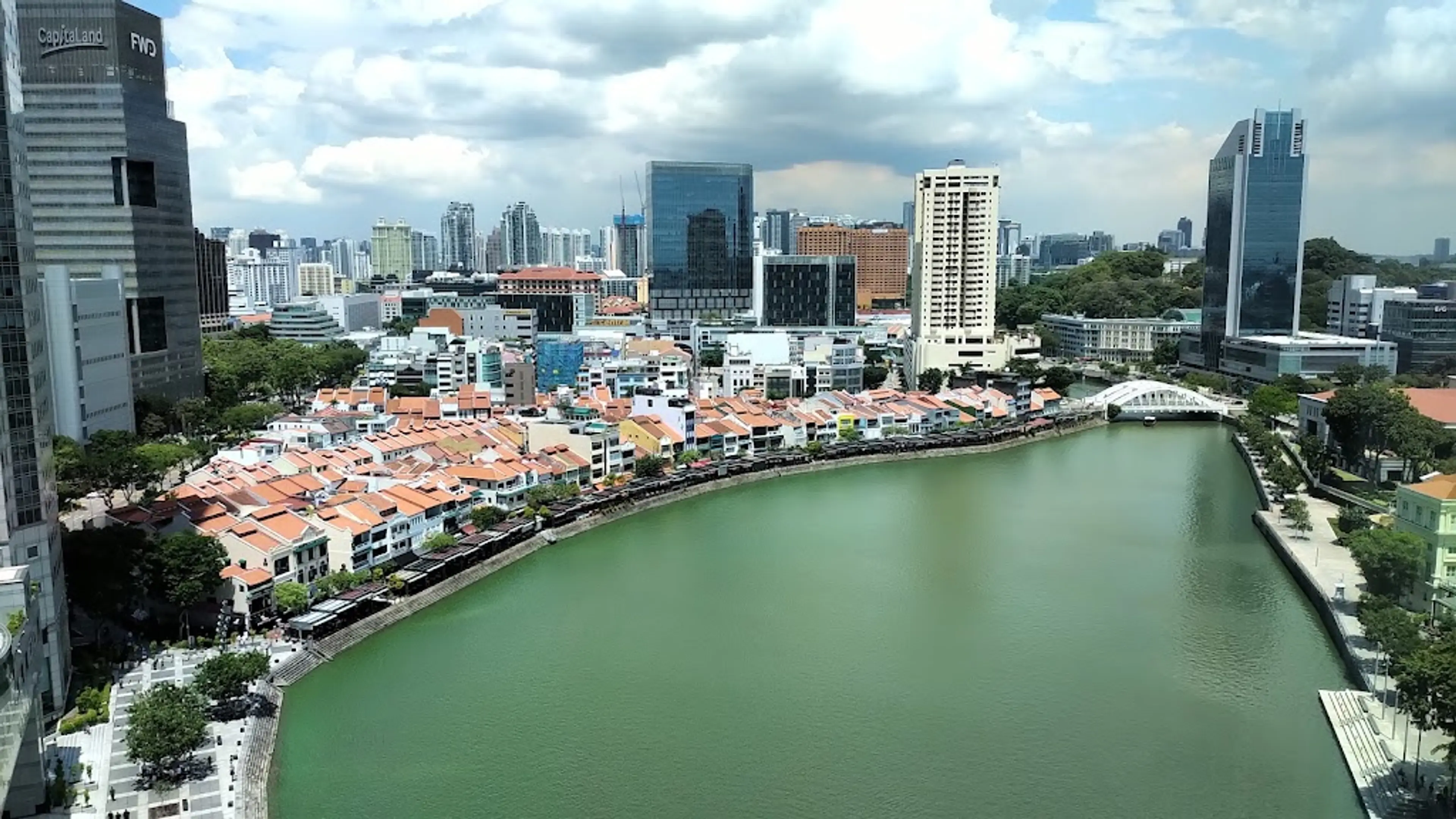
3Singapore River
A river that runs parallel to Alexandra Road and feeds into the Marina Reservoir. The river is also a popular spot for river cruises.
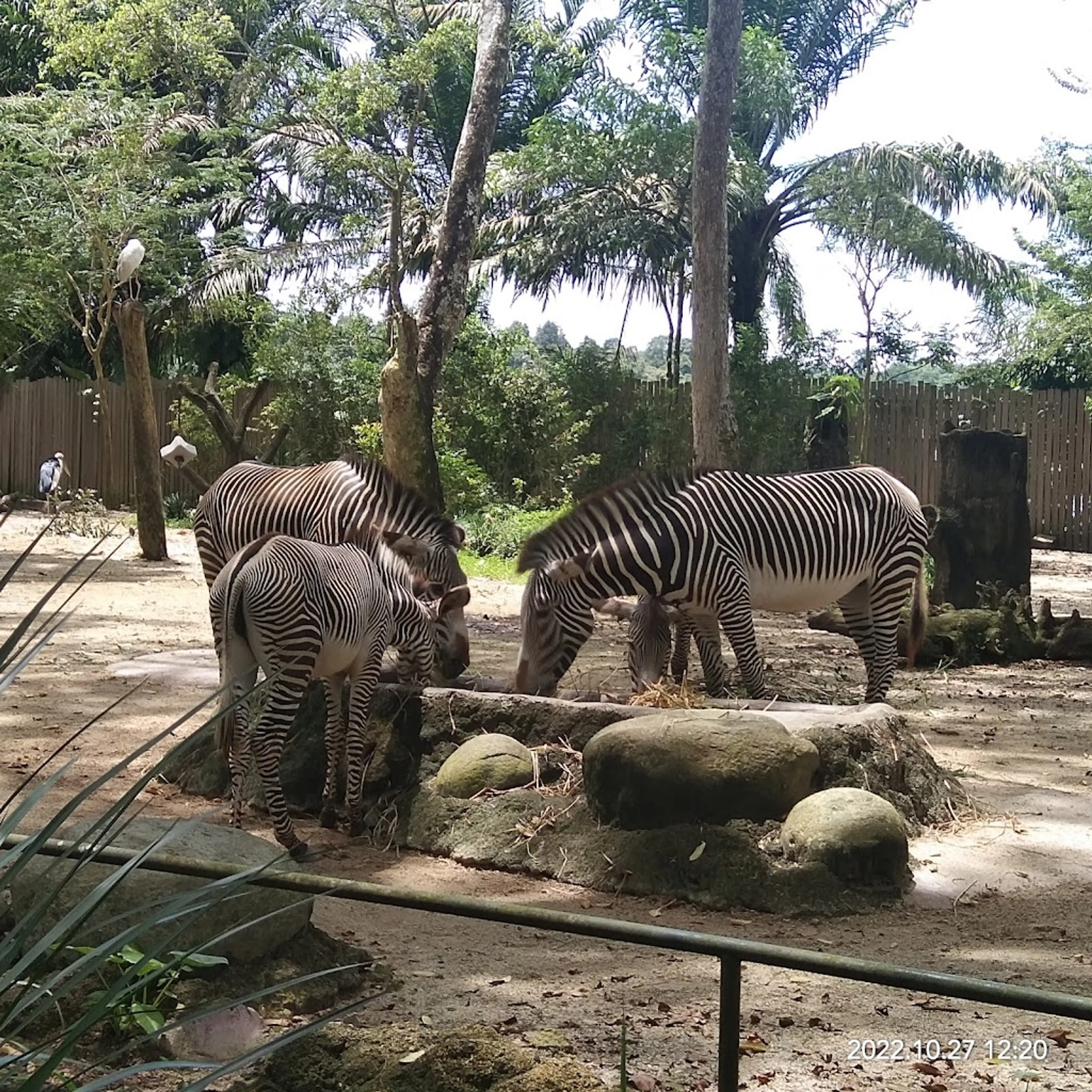
4Singapore Zoo
One of the world's best rainforest zoos with a collection of over 2,800 animals.
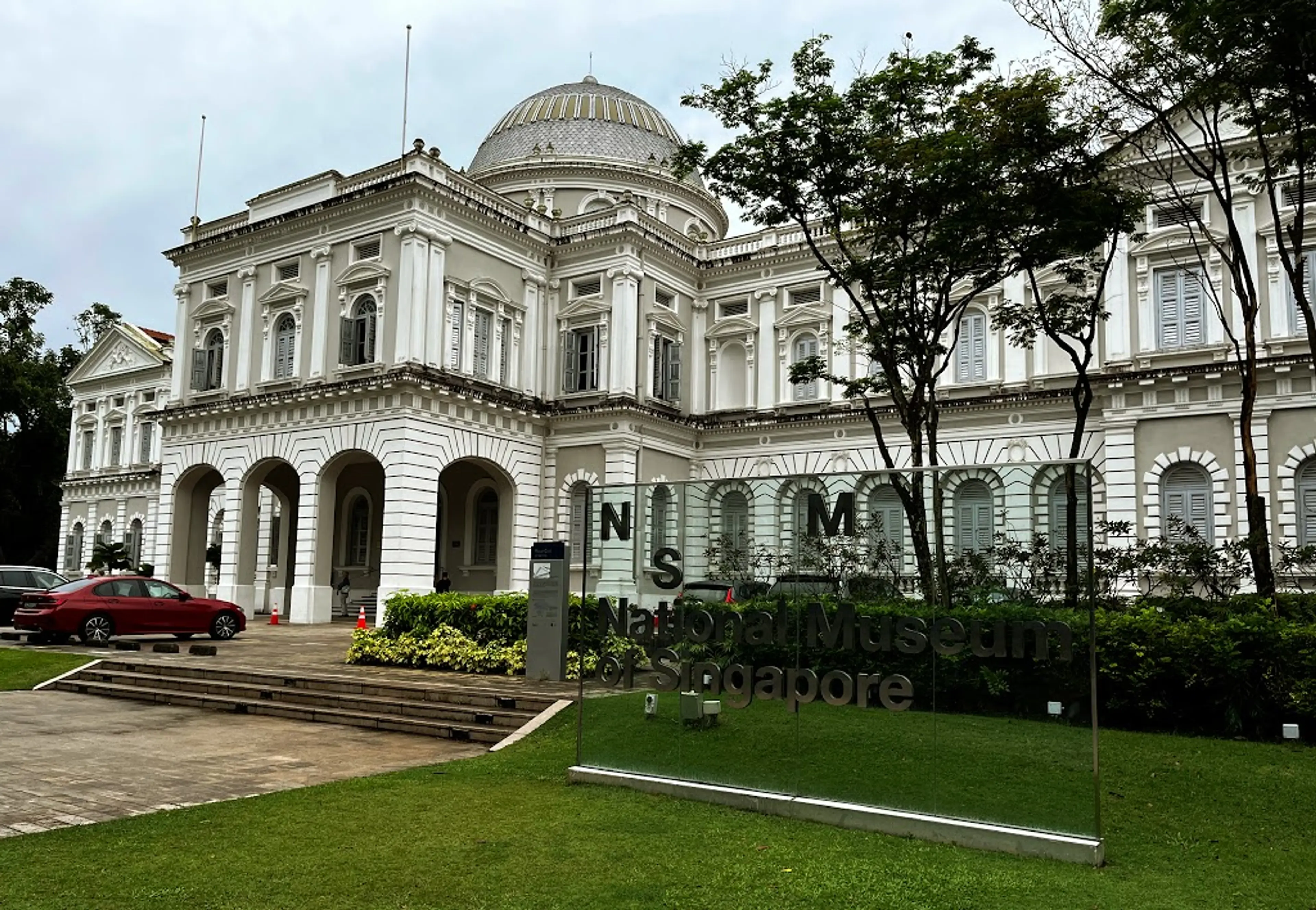
5National Museum of Singapore
The oldest museum in Singapore. Its history dates back to 1849 when it was started as a section of a library at Singapore Institution.

6Merlion Park
A popular tourist icon of Singapore, depicting a mythical creature with a lion's head and the body of a fish.
Local Food and Drinks (12)
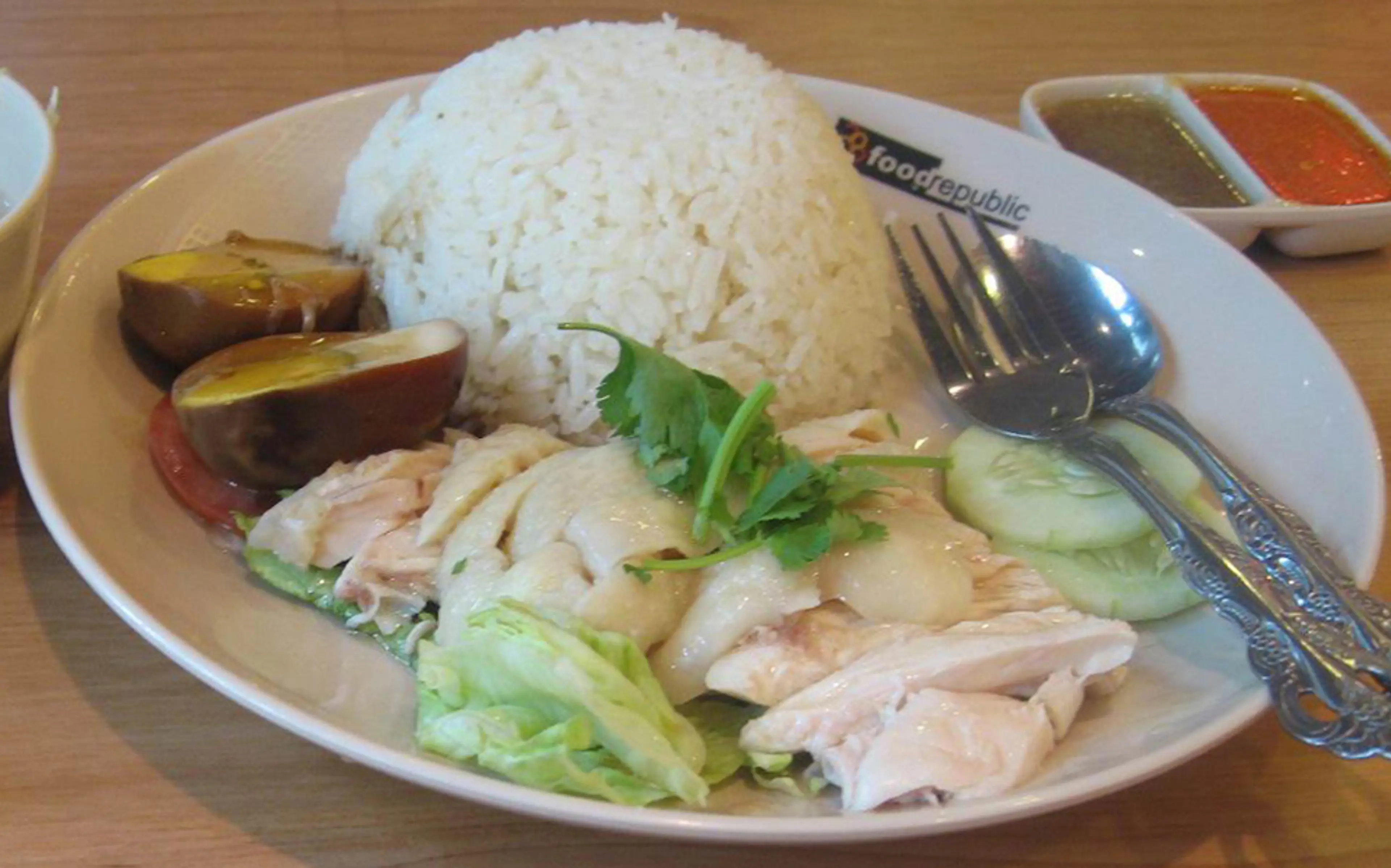
Hainanese Chicken Rice
A dish adapted from early Chinese immigrants from Hainan province in southern China, Hainanese Chicken Rice is considered Singapore's national dish. It consists of succulent steamed white chicken cut into bite-size pieces and served on fragrant rice with some light soy sauce.
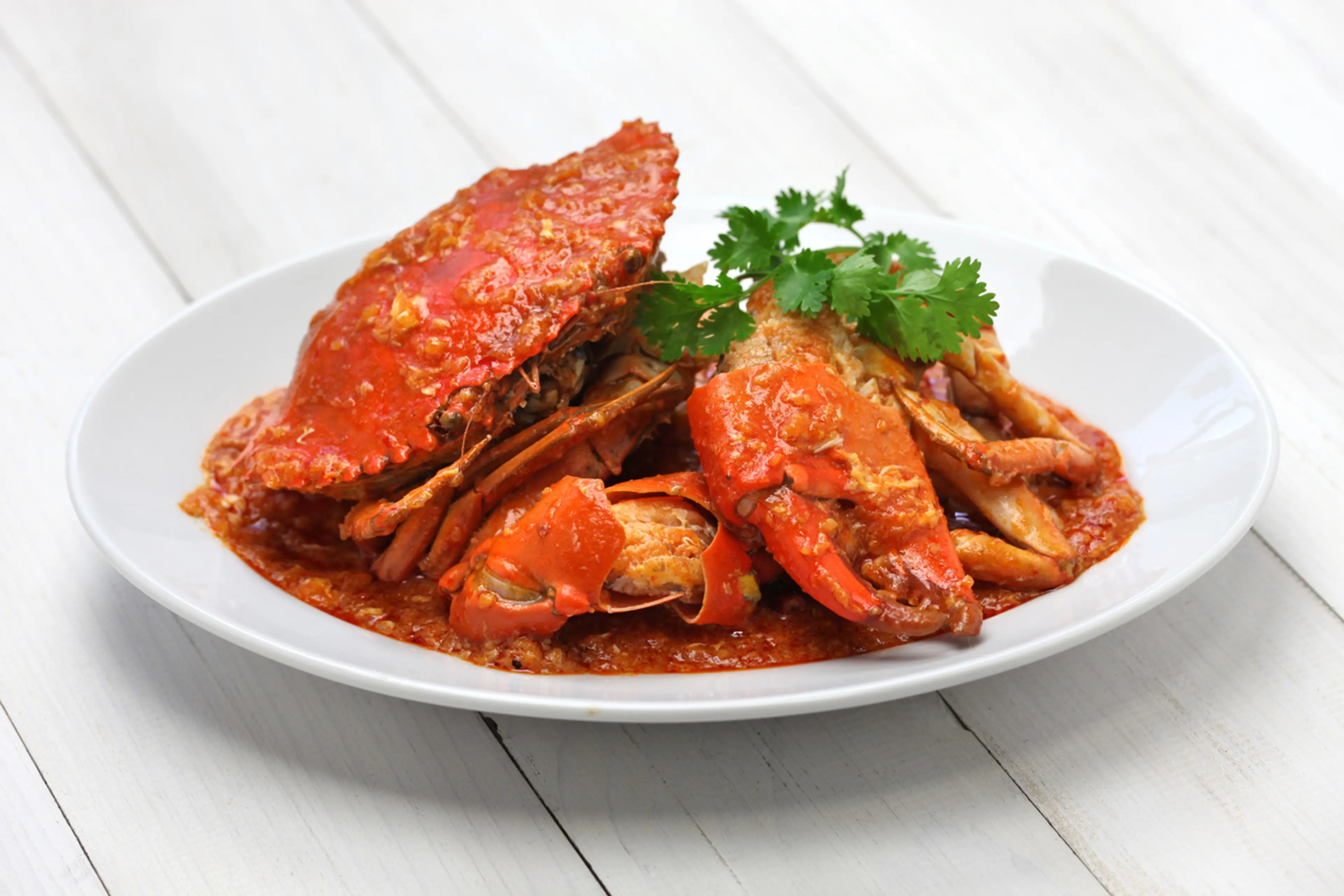
Chilli Crab
One of Singapore's greatest culinary inventions, Chilli Crab is a must-try for seafood lovers. It's a dish where mud crabs are stir-fried in a semi-thick, sweet and savoury tomato and chilli based sauce.

Laksa
A Peranakan dish that's a blend of Chinese and Malay cuisine, Laksa is a spicy noodle soup that's a staple in Singapore. It's made with rice noodles, coconut milk, and a variety of seafood.
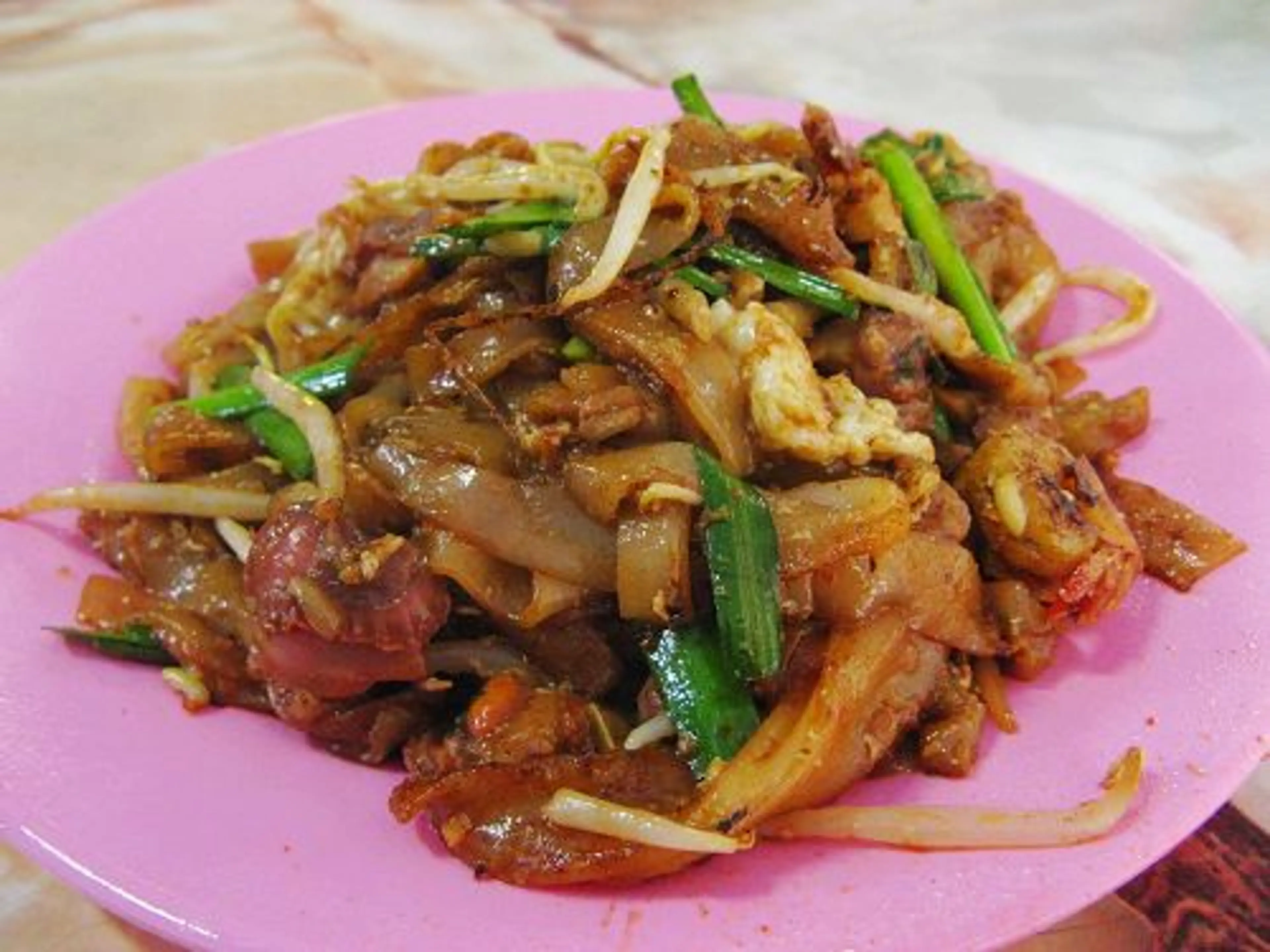
Char Kway Teow
A popular noodle dish in Singapore, Char Kway Teow is stir-fried rice noodles with shrimp, bloody cockles, Chinese lap cheong (sausage), eggs, bean sprouts, and chives in a mix of soy sauce.
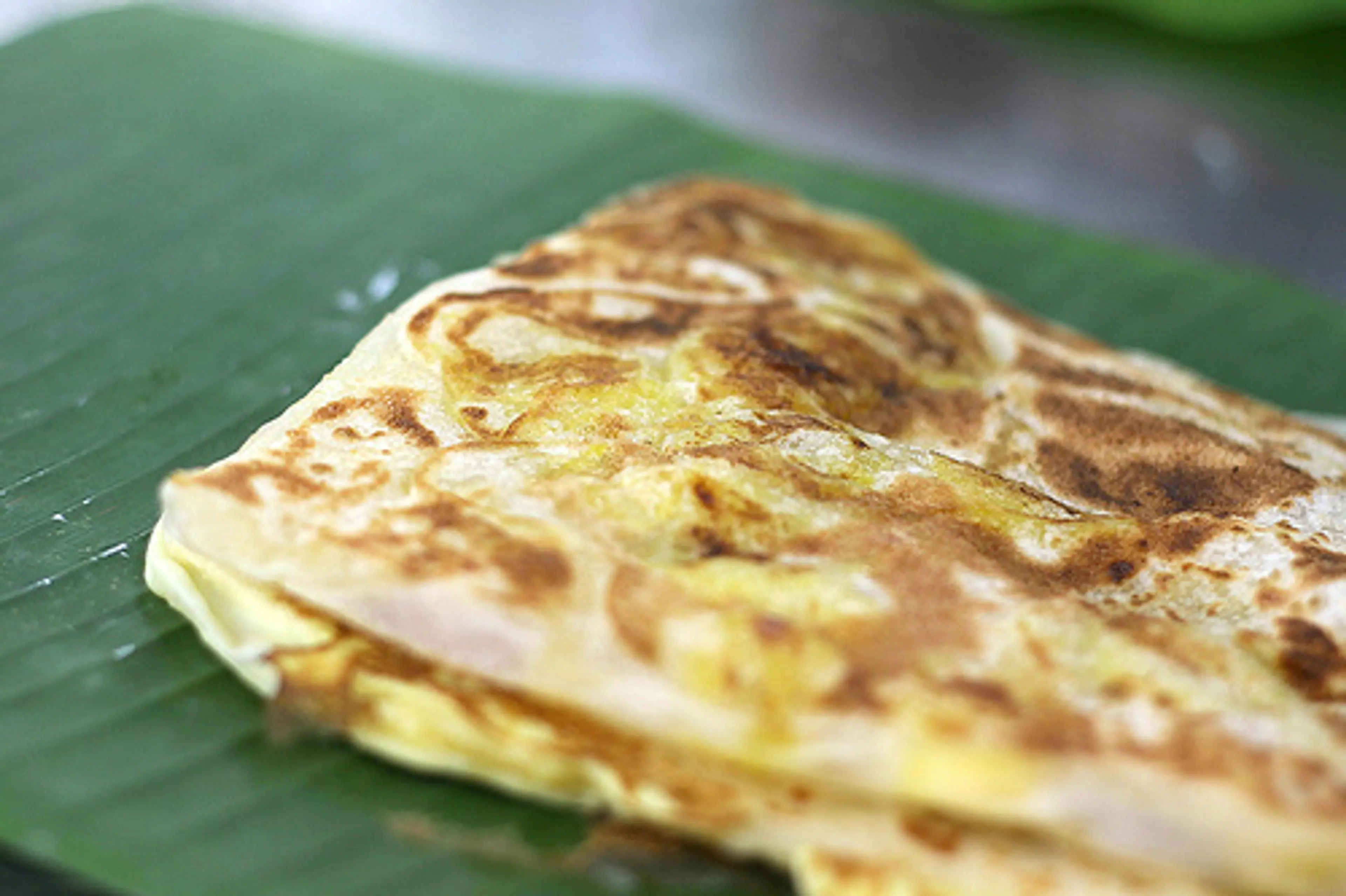
Roti Prata
A South-Indian flat bread made by frying stretched dough flavored with ghee (Indian clarified butter), it is usually served with a side of fish or chicken curry.
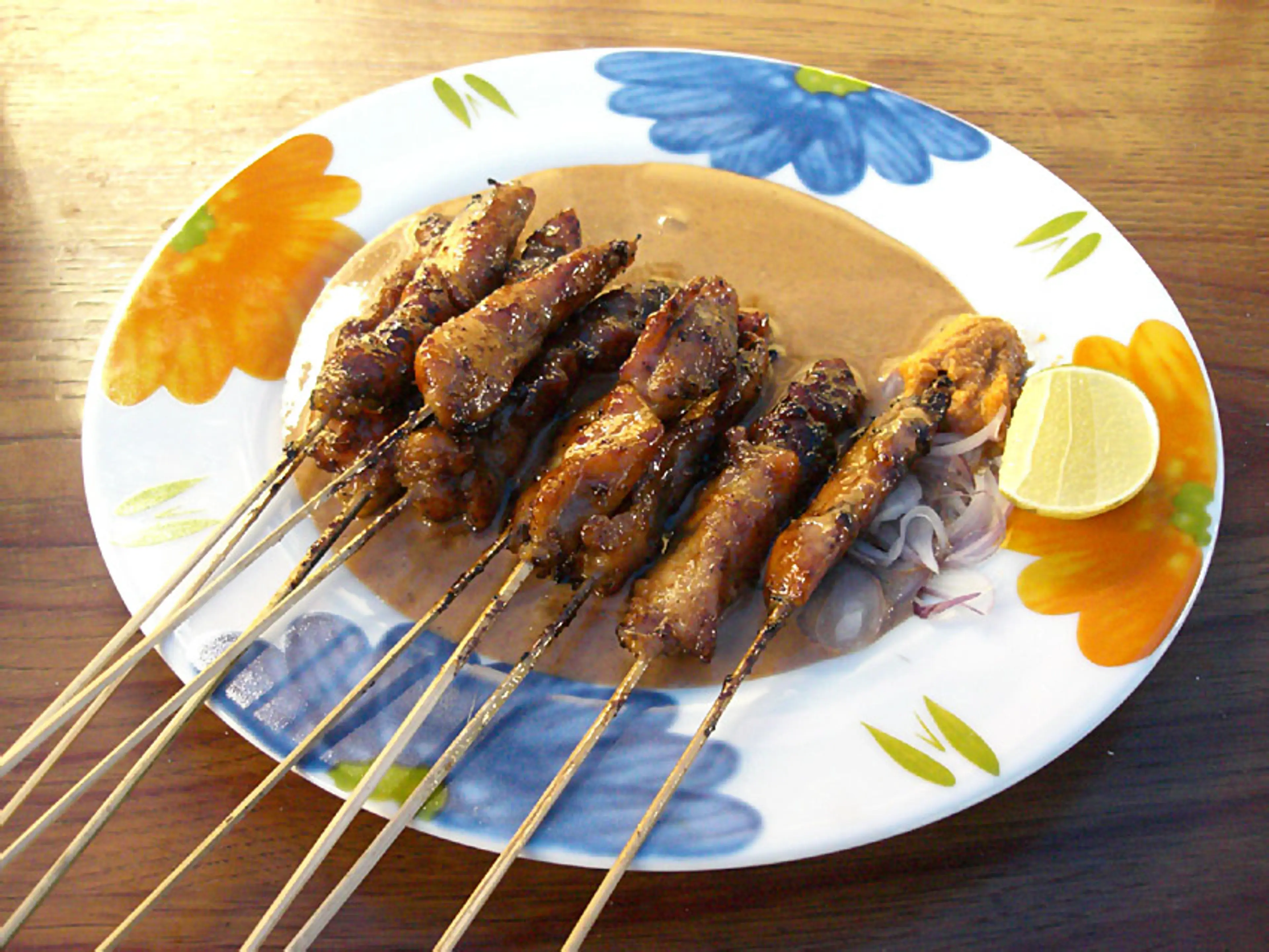
Satay
A dish of seasoned, skewered and grilled meat, served with a sauce. Satay is a popular street food in Singapore, with influences from Indonesian cuisine.
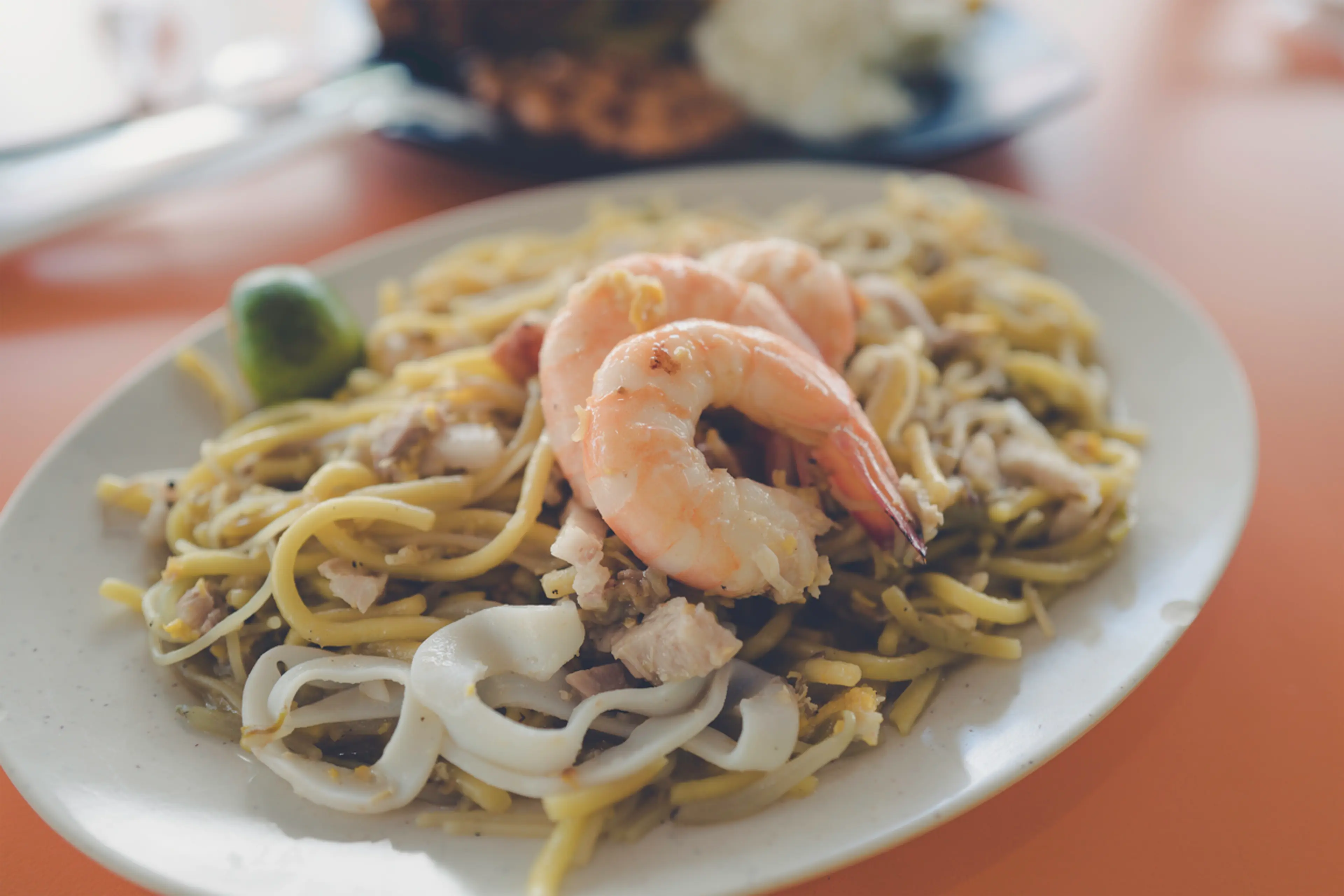
Hokkien Prawn Mee
A stir-fried noodle dish that's a favorite in Singapore, Hokkien Prawn Mee is made with a mix of yellow noodles and rice noodles stir-fried with egg, slices of pork, prawns and squid, and served and garnished with vegetables, small pieces of lard, sambal sauce and lime.
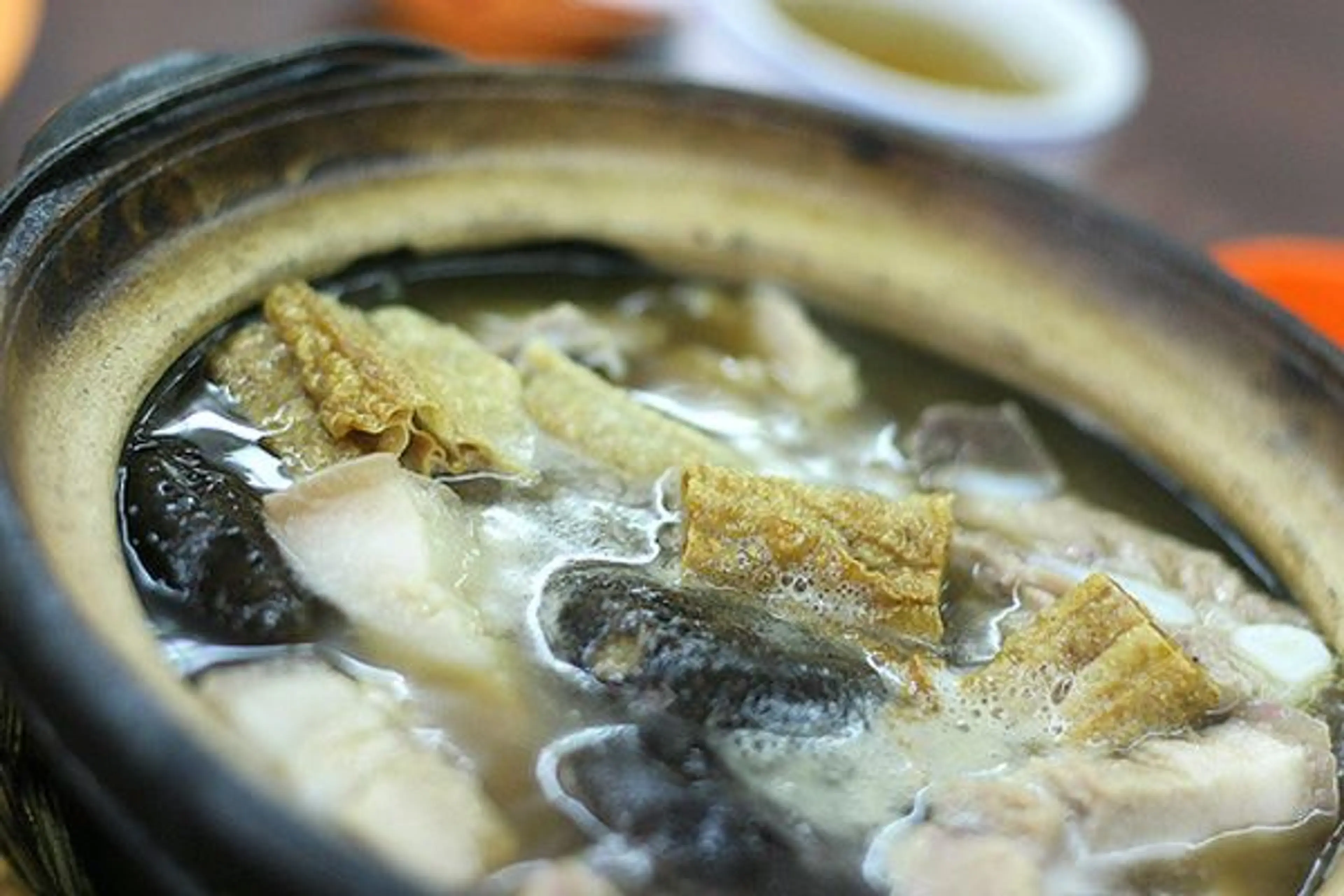
Bak Kut Teh
A pork rib dish cooked in broth popularly served in Malaysia and Singapore, Bak Kut Teh is a hearty and flavorful dish made from meaty pork ribs simmered in a complex broth of herbs and spices.

Fish Head Curry
A dish where the head of a red snapper is semi-stewed in a Kerala-style curry with assorted vegetables such as okra and eggplants. It is usually served with either rice or bread.

Ais Kacang
A popular dessert in Singapore, Ais Kacang is a mountain of shaved ice topped with sweetened syrups of various colors and flavors, condensed and evaporated milk, and small toppings such as red beans, sweet corn, and attap chee (palm seed).
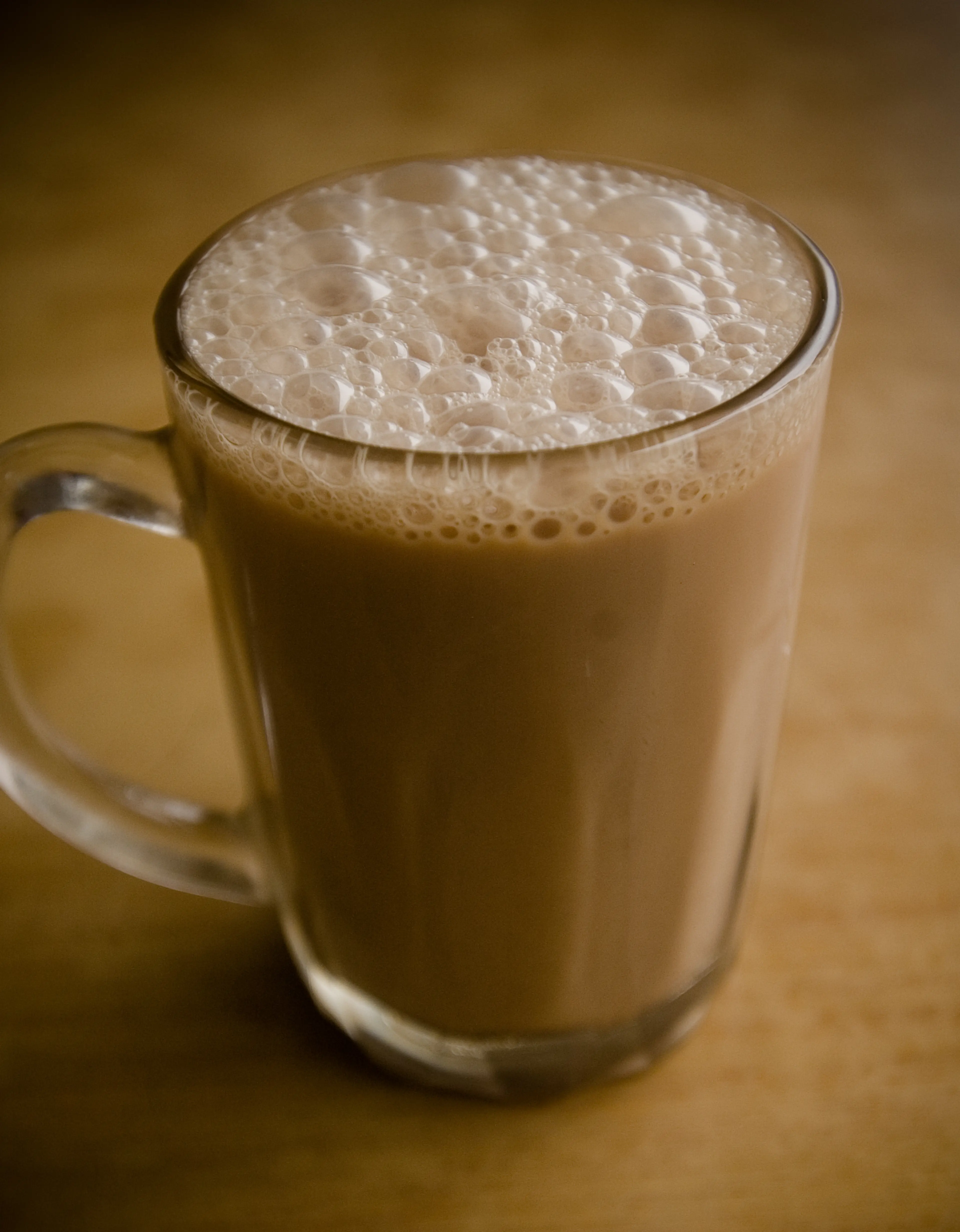
Teh Tarik
A hot milk tea beverage which can be commonly found in restaurants, outdoor stalls and kopi tiams within the Southeast Asian countries of Malaysia and Singapore. Its name is derived from the pouring process of 'pulling' the drink during preparation.

Tiger Beer
Singapore's first locally brewed beer, Tiger Beer is a 5% abv pale lager. It's a popular choice among locals and tourists alike.
Best time to visit
The best time to visit Singapore is between February and April. These months fall within the region's dry season and experience less rainfall than other times of the year. Additionally, this period is considered the most enjoyable time to explore the city's outdoor activities. However, it's worth noting that Singapore has a fairly consistent tropical climate year-round, so any time can be a good time to visit depending on your preferences.
How to get around
Mass Rapid Transit (MRT)
Singapore's MRT (Mass Rapid Transit) system is probably the fastest way to zip around the city. The extensive rail network means that most of Singapore's key attractions are within walking distance from an MRT station.
Buses
Singapore's bus system has an extensive network of routes covering most places in Singapore and is the most economical way to get around, as well as being a scenic route for sightseeing.
Taxis
Taxis are comfortable and especially handy if you want to go to places not accessible by the bus or MRT. Cabs here are metered, but there may be surcharges depending on when, where and which company’s taxi you board.
Ride-Sharing
Ride-sharing services such as Grab are widely available in Singapore. They offer a convenient and often cheaper alternative to traditional taxis. You can book a ride using their smartphone apps.
Bicycle Sharing
Bicycle sharing services like SG Bike and Anywheel are available for short trips around the city. You can rent a bike using their respective smartphone apps.
Trishaws
Trishaws, a type of rickshaw, offer a unique and traditional means of transportation in Singapore. They are mainly used for short trips around the central tourist areas.
River Taxis
River taxis, also known as bumboats, offer a scenic way to explore Singapore's iconic Marina Bay, Clarke Quay, and Boat Quay.
Car Rental
Renting a car in Singapore is a good option if you plan to drive around the city. However, it's worth noting that Singapore has an excellent public transportation system and heavy traffic can make driving a challenge.
Foot
Singapore is a compact city and it's possible to walk to many of the main attractions. The city is pedestrian-friendly with plenty of walkways and pedestrian crossings.
Important information
Currency SGD
Time zoneUTC+8
Driving sideLeft
Emergency phoneAmbulance: 995; Fire: 995; Police: 999
Drinking waterYes
Power sockets
Voltage230 V
Things to know about Singapore as a first time visitor
1
Singapore is a city-state located in Southeast Asia, known for its multicultural population and high standard of living.
2
The official languages are English, Malay, Mandarin, and Tamil. However, English is widely spoken and understood.
3
The currency used in Singapore is the Singapore Dollar (SGD). Credit cards are widely accepted, but it's always good to have some cash on hand for smaller establishments or hawker centers.
4
Singapore is known for its strict laws and regulations. For example, littering, jaywalking, and chewing gum are all punishable offenses.
5
The country has a tropical rainforest climate with no distinctive seasons. The temperature usually ranges from 75°F to 89°F (24°C to 32°C).
6
Singapore is 8 hours ahead of Greenwich Mean Time (GMT+8). It does not observe daylight saving time.
7
Tipping is not customary in Singapore. It is often included in the bill as a service charge.
8
Singapore's public transportation system is highly efficient and includes the Mass Rapid Transit (MRT), buses, and taxis.
9
The country is known for its cleanliness. Public toilets are generally well-maintained and clean.
10
Singapore's tap water is safe to drink. Bottled water is also readily available.
11
The country has a high cost of living compared to other Southeast Asian countries. Plan your budget accordingly.
12
Singapore is a food paradise. Don't miss out on trying local dishes like Hainanese chicken rice, chili crab, and laksa.
13
Singapore is a shopping haven, from luxury brands to local markets like Bugis Street Market.
14
The country has strict drug laws. Possession, consumption, or trafficking of illegal drugs can lead to severe penalties, including death.
15
Singapore uses the Type G plug. The standard voltage is 230 V, and the standard frequency is 50 Hz.
16
The country has an excellent healthcare system, but it can be expensive for tourists. It's recommended to have travel insurance that covers health.
17
Singapore is generally safe, but it's always important to stay vigilant and aware of your surroundings.
18
The country is very pedestrian-friendly, with well-maintained sidewalks and pedestrian crossings.
19
Singapore has a high humidity level year-round, so lightweight and breathable clothing is recommended.
20
The country has a zero-tolerance policy towards corruption. Bribery and other forms of corruption are severely punished.
Packing List
Clothing
Lightweight clothing
Underwear
Socks
Sleepwear
Swimsuit
Comfortable walking shoes
Sunglasses
Hat
Rain jacket or umbrella
Toiletries
Travel-size shampoo
Travel-size conditioner
Travel-size body wash
Toothbrush
Toothpaste
Deodorant
Razor
Shaving cream
Sunscreen
Insect repellent
Prescription medications
First-aid kit
Travel documents and essentials
Passport
Driver's license or ID card
Credit and debit cards
Cash and coins
Travel insurance documents
Hotel and/or tour contact information
Tickets for attractions, if pre-purchased
Maps or guidebooks
Electronics and gadgets
Smartphone
Charger for smartphone
Universal power adapter
Headphones
Camera
Charger for camera
Portable power bank
Miscellaneous items
Travel pillow
Earplugs
Eye mask
Snacks
Water bottle
Books or e-books for leisure reading
Travel-size laundry detergent
Plastic bags for dirty clothes or shoes
Weather Conditions
Singapore, located near the equator, experiences a tropical rainforest climate with high humidity and abundant rainfall. The temperature usually ranges from 77°F to 89°F (25°C to 32°C) throughout the year. When planning your trip, it's important to note that Singapore doesn't have distinct seasons like summer, winter, spring, and autumn. Instead, it has two main monsoon seasons. The Northeast Monsoon occurs from December to early March and the Southwest Monsoon from June to September. During these periods, expect heavy and frequent rainfall. Despite the rain, there's plenty of sunshine in Singapore. The city-state receives an average of 5.5 hours of sunlight daily, so don't forget your sunscreen, sunglasses, and hats to protect yourself from the strong UV rays. The high humidity, which can reach up to 80%, can make the heat feel more intense. Lightweight, breathable clothing is recommended. Also, stay hydrated and take breaks in air-conditioned places whenever possible. Even though it's warm throughout the year, it's a good idea to carry a light jacket or sweater. Many indoor areas, like shopping malls and restaurants, are heavily air-conditioned and can feel quite chilly. Lastly, always carry an umbrella or a raincoat, as rain showers can be unpredictable and sudden. Despite the rain, Singapore's weather is generally warm, so don't let it dampen your spirits or your plans. There's always something to do, rain or shine!
| Month | Hi / Lo (°C) | Weather Overview |
|---|---|---|
January | 31° / 23° | January is the wettest month in Singapore with heavy rainfall. Despite the rain, temperatures remain high, so pack light clothing and an umbrella. |
February | 31° / 23° | February sees slightly less rainfall than January. It's still warm, so light clothing is recommended, but don't forget your umbrella. |
March | 32° / 24° | March is the start of the hot season in Singapore. Expect high humidity and occasional thunderstorms. |
April | 33° / 24° | April is one of the hottest months in Singapore. It's also the start of the Southwest Monsoon season, so be prepared for sudden showers. |
May | 33° / 25° | May continues to be hot and humid in Singapore. Rainfall is less frequent but when it does rain, it can be heavy. |
June | 33° / 24° | June is a hot month with occasional rain showers. It's a good time to visit indoor attractions or enjoy the city's nightlife. |
July | 32° / 24° | July is slightly cooler but still hot. Rainfall is less frequent, making it a good time for outdoor activities. |
August | 32° / 24° | August is similar to July with less rainfall. It's a good time to explore the city and its many attractions. |
September | 32° / 24° | September marks the end of the hot season. It's still warm, but there's less rainfall compared to the earlier months. |
October | 32° / 24° | October is the start of the Northeast Monsoon season. Expect more rainfall, especially in the afternoons and evenings. |
November | 31° / 23° | November is one of the wettest months in Singapore. Pack an umbrella and plan for indoor activities. |
December | 31° / 23° | December continues to be wet with high humidity. Despite the rain, it's a festive time to visit with Christmas and New Year celebrations. |
Did you know?
Places near by Singapore

Legoland Malaysia
A theme park and resort that offers more than 70 interactive rides, shows and attractions.
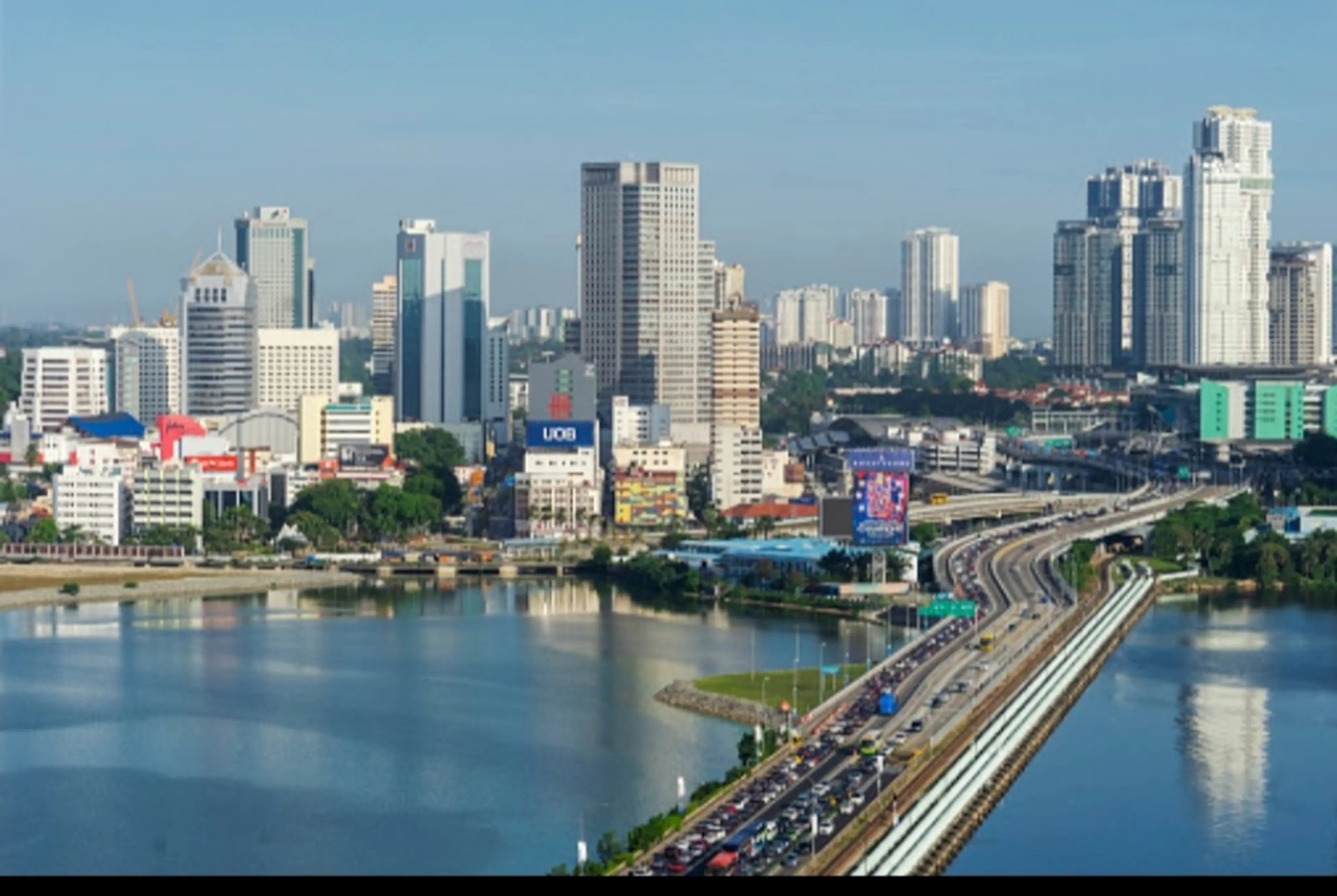
Johor Bahru
A bustling city with shopping, dining, and entertainment options.
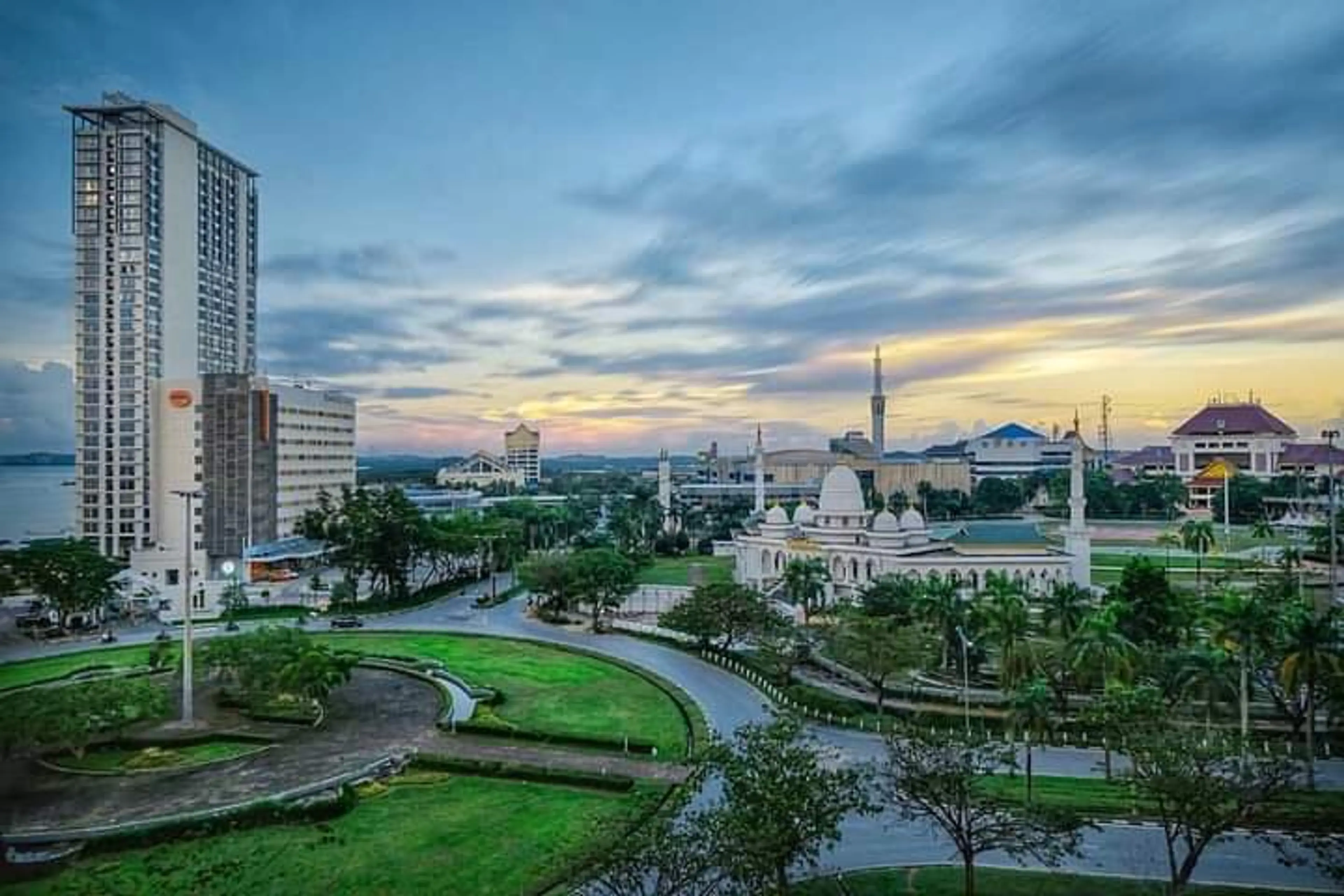
Batam
A small island known for its beaches, nightlife, and duty-free shopping.
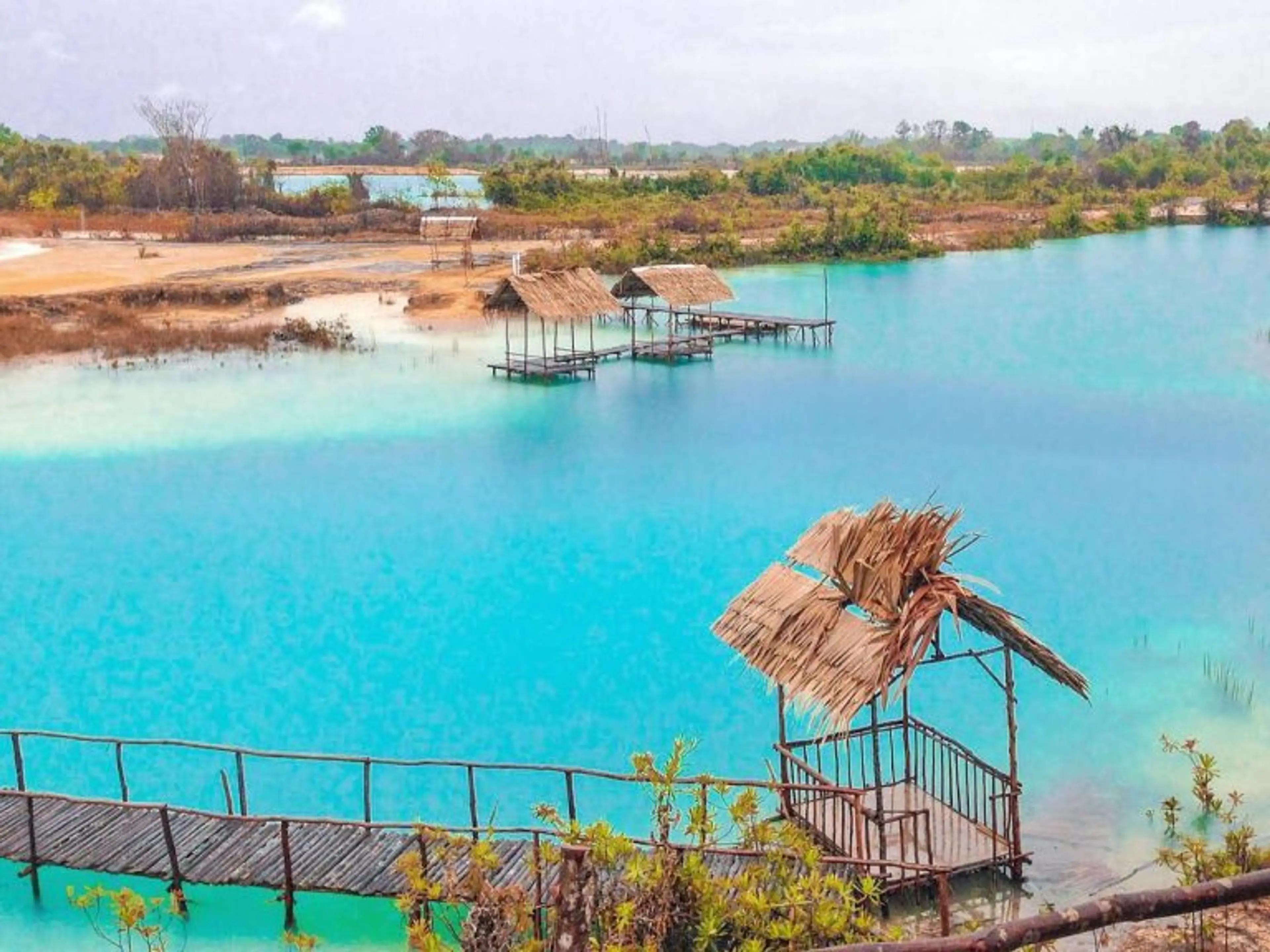
Bintan Island
A tropical paradise with beautiful beaches and luxurious resorts.
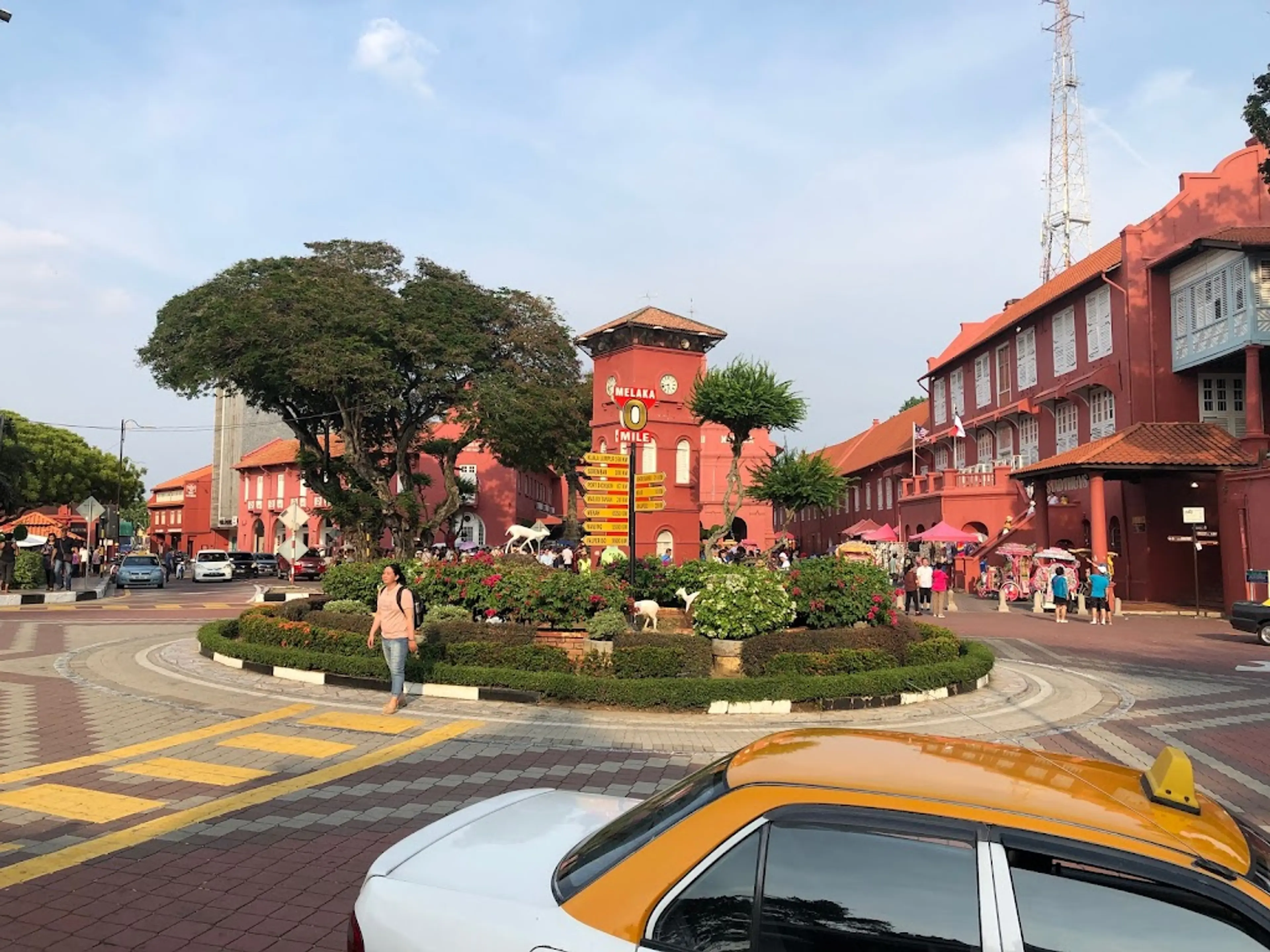
Malacca
A historical city with a rich cultural heritage and colonial buildings.

Kuala Lumpur
The capital city of Malaysia, known for its skyscrapers, shopping, and street food.
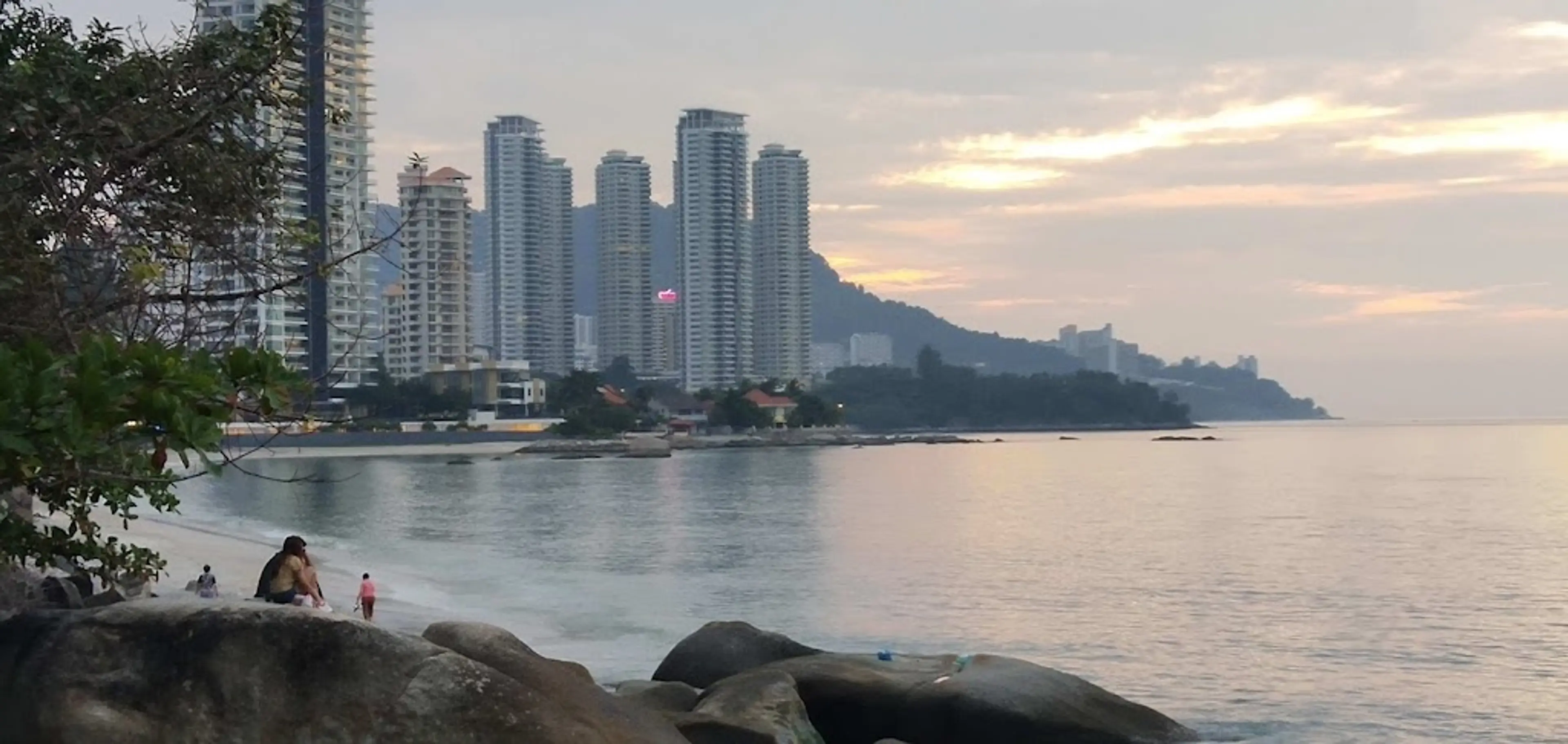
Penang
A vibrant city known for its colonial architecture and street food.
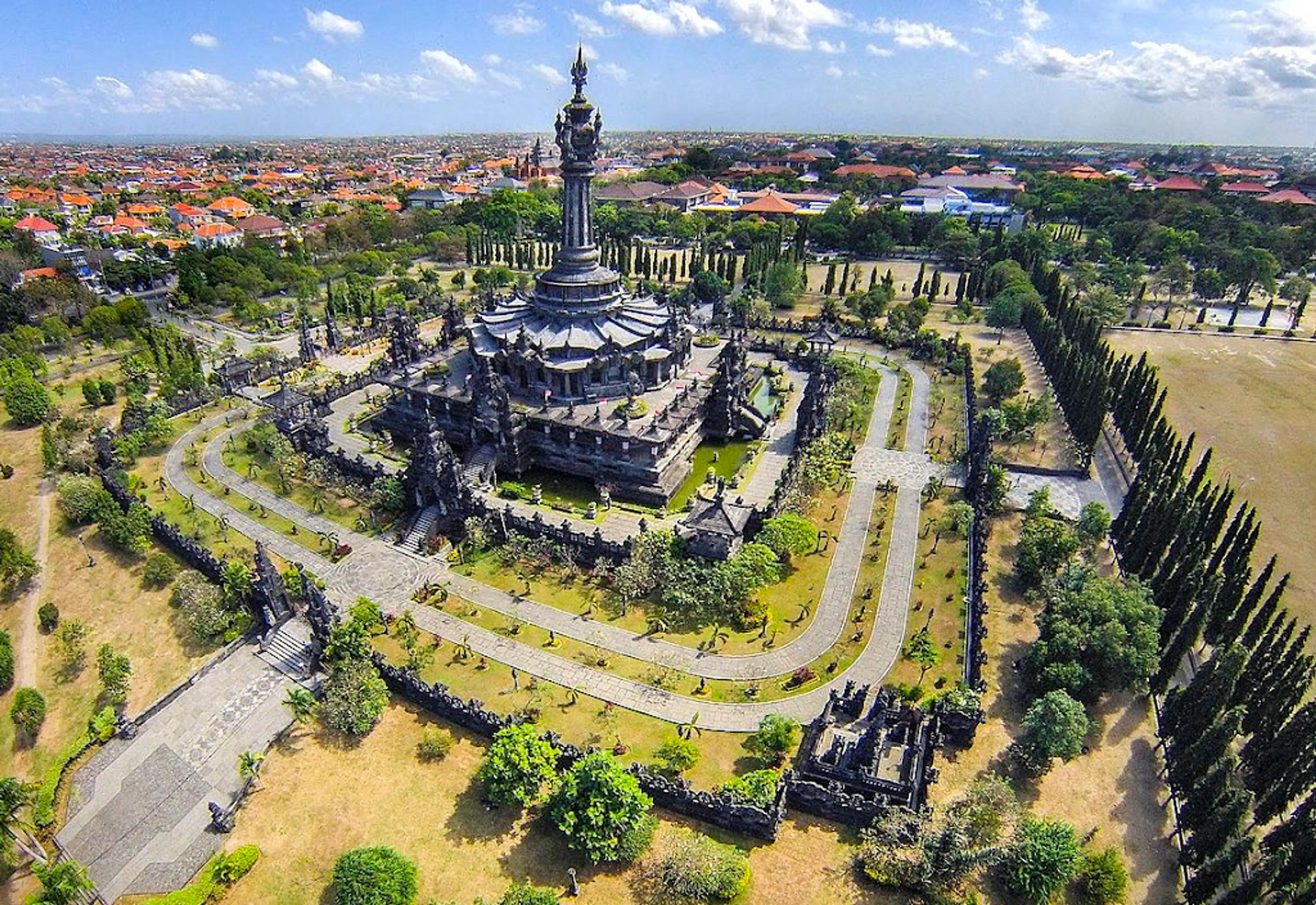
Bali
A popular tourist destination known for its beaches, temples, and nightlife.
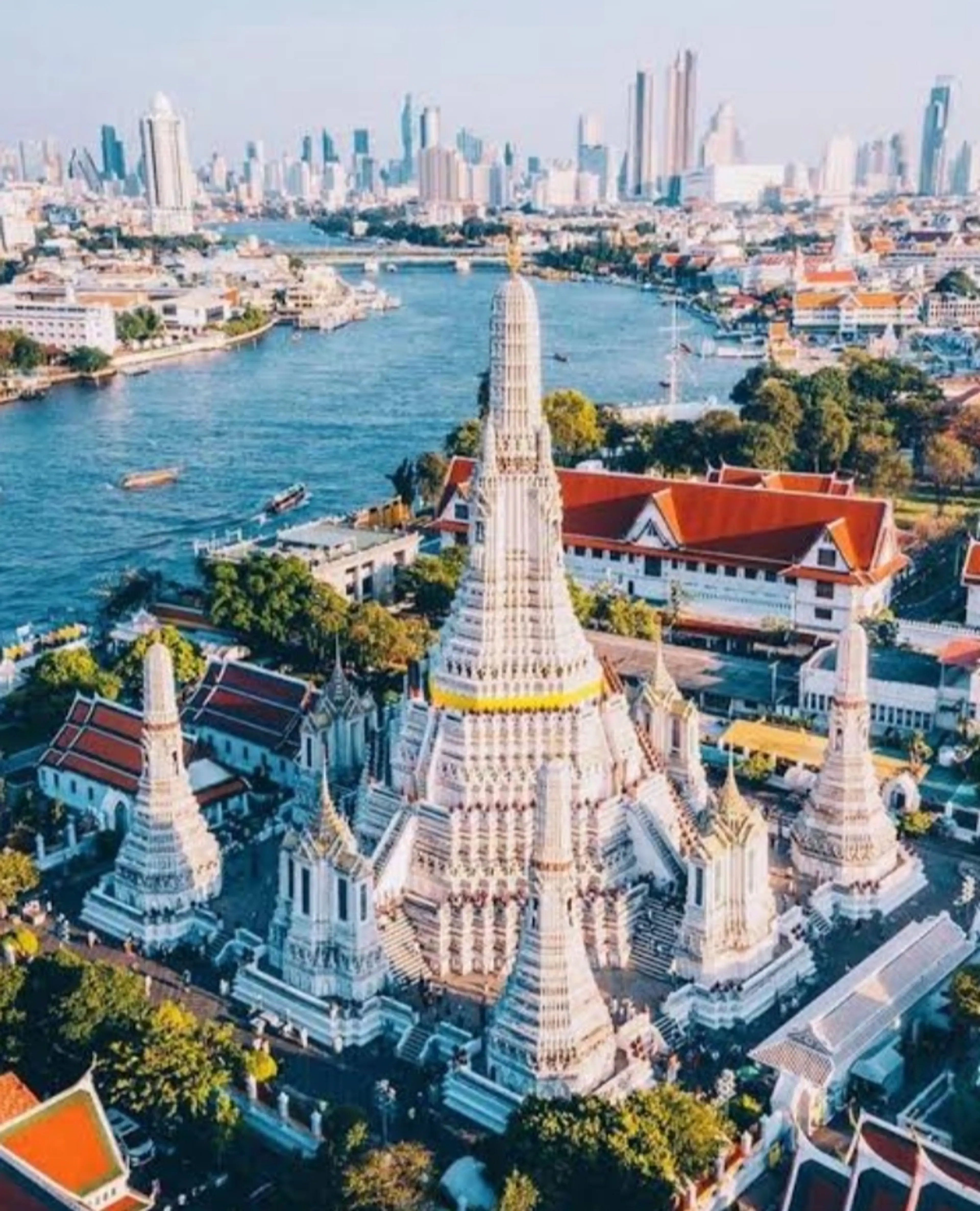
Bangkok
The capital city of Thailand, known for its bustling street life and cultural landmarks.
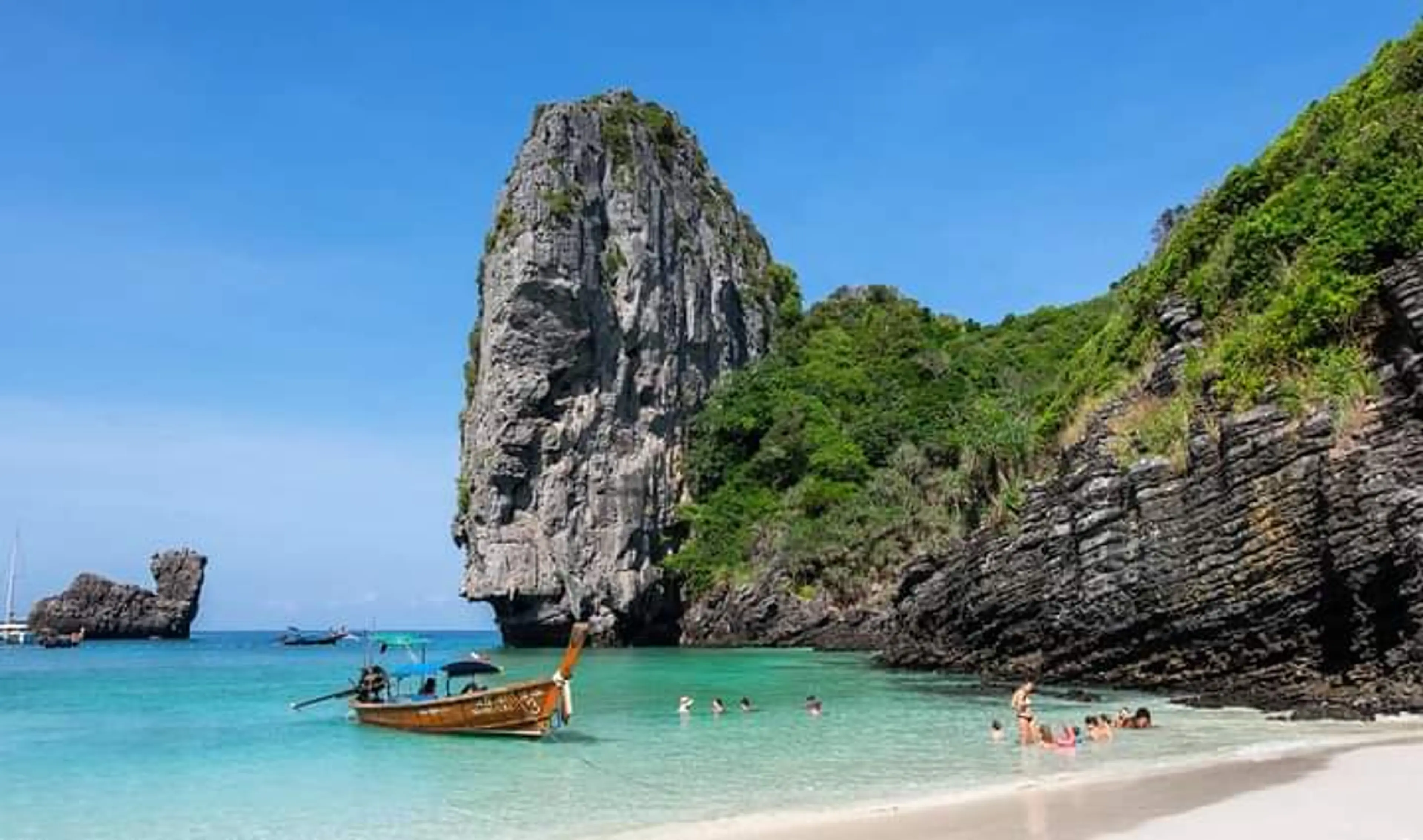
Phuket
A popular beach destination with a vibrant nightlife and water sports.
